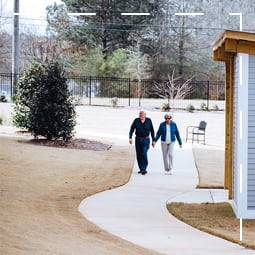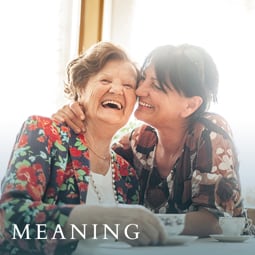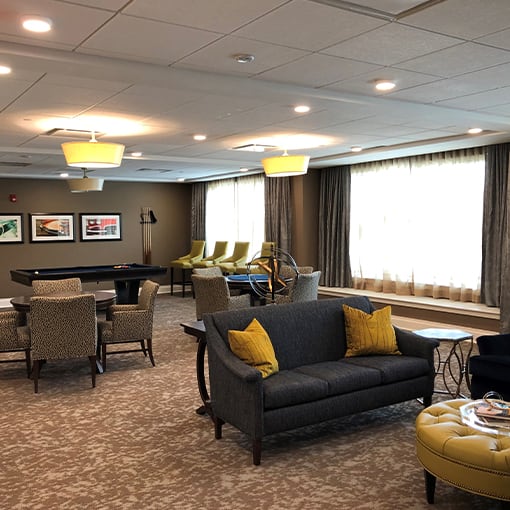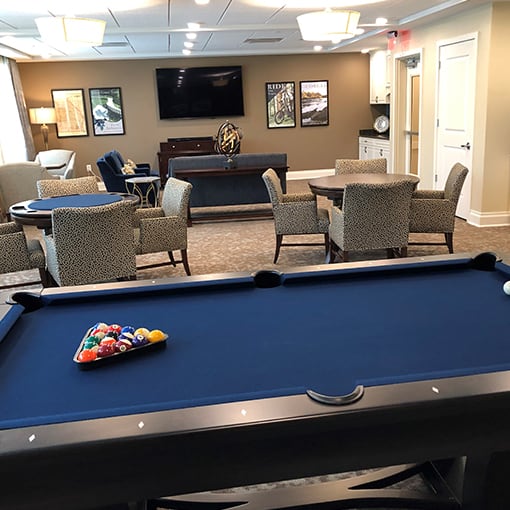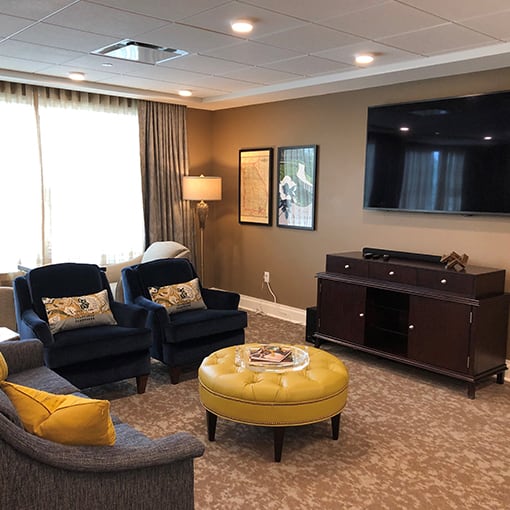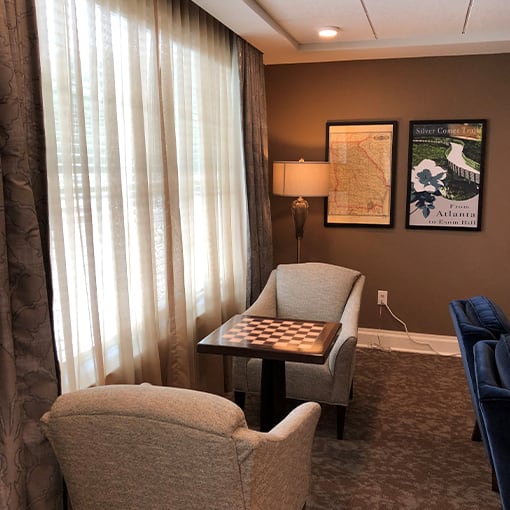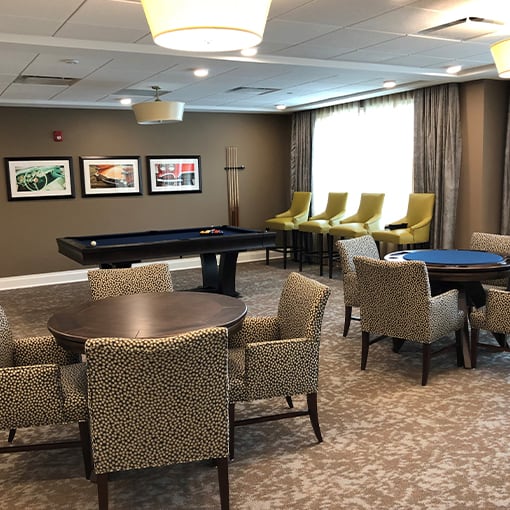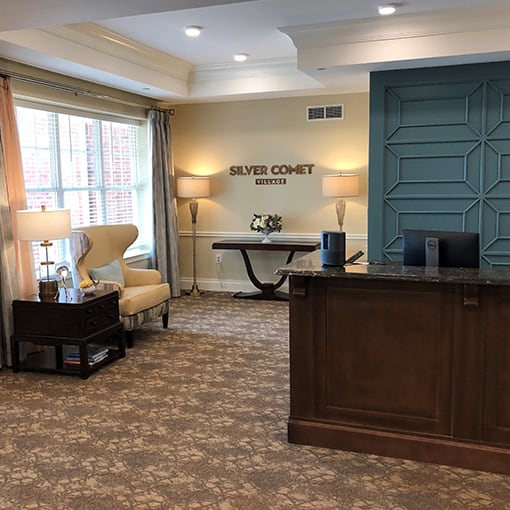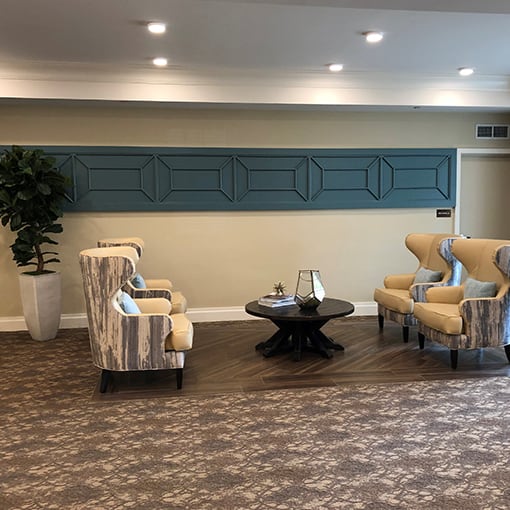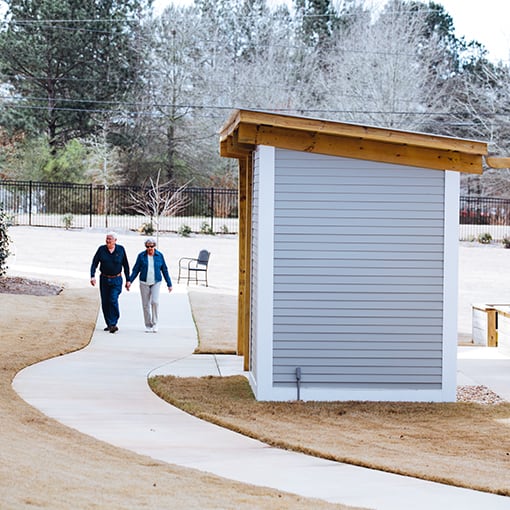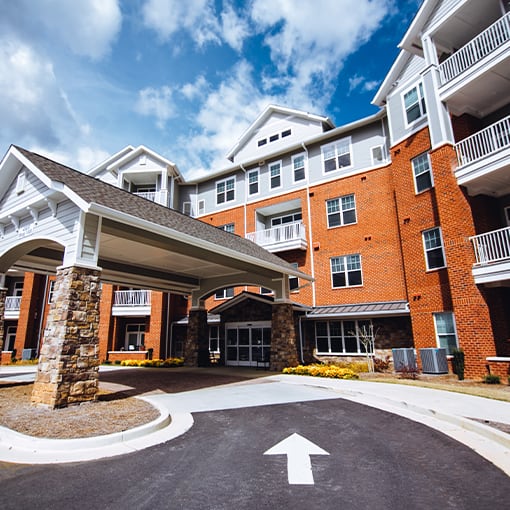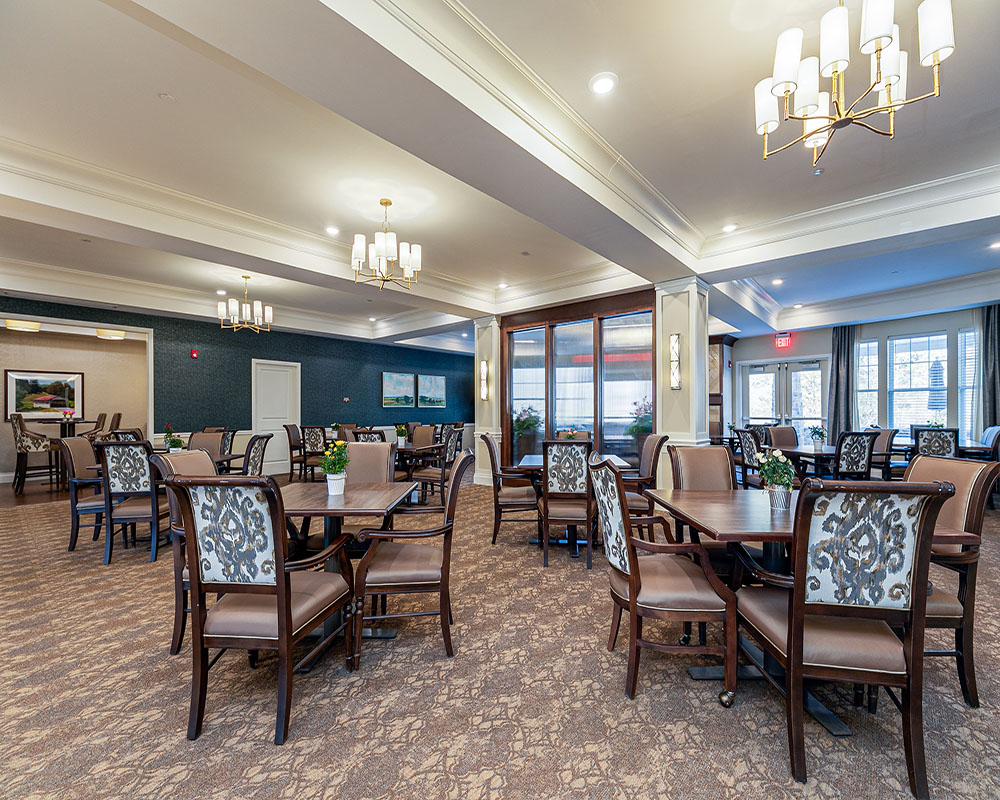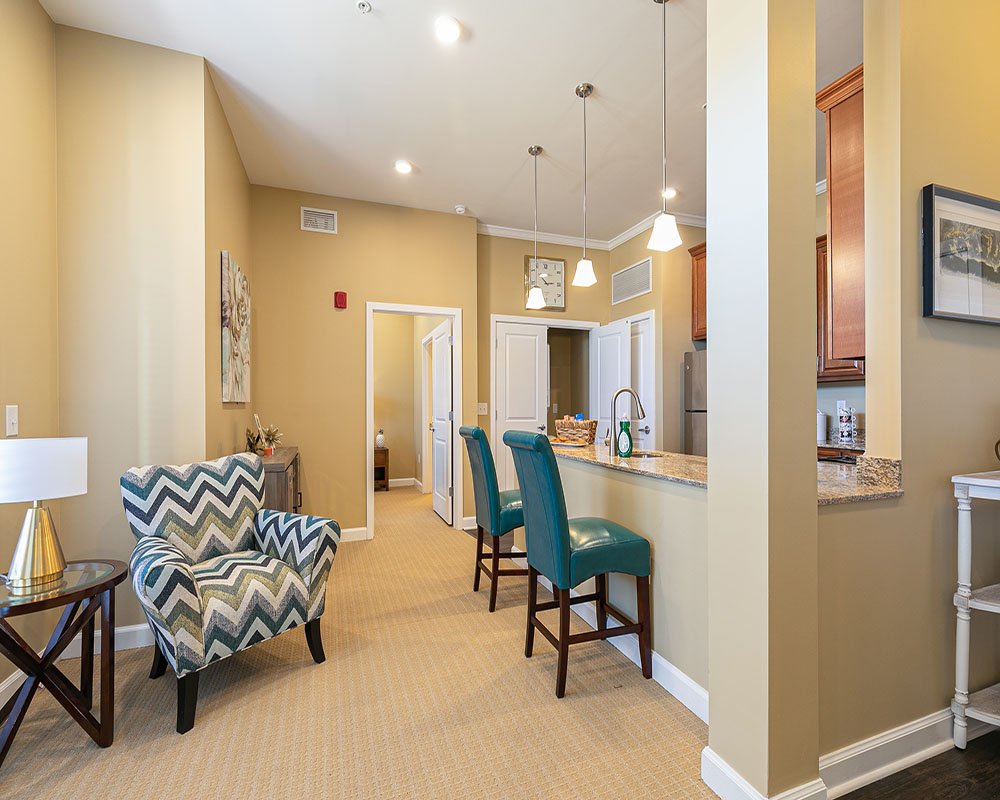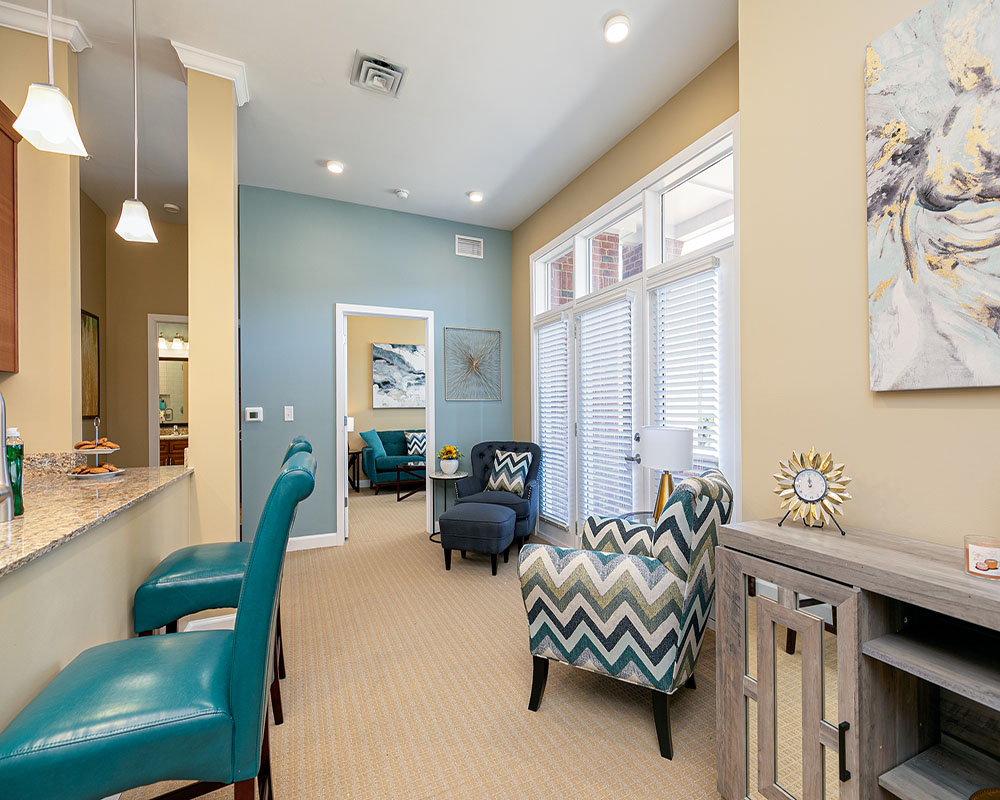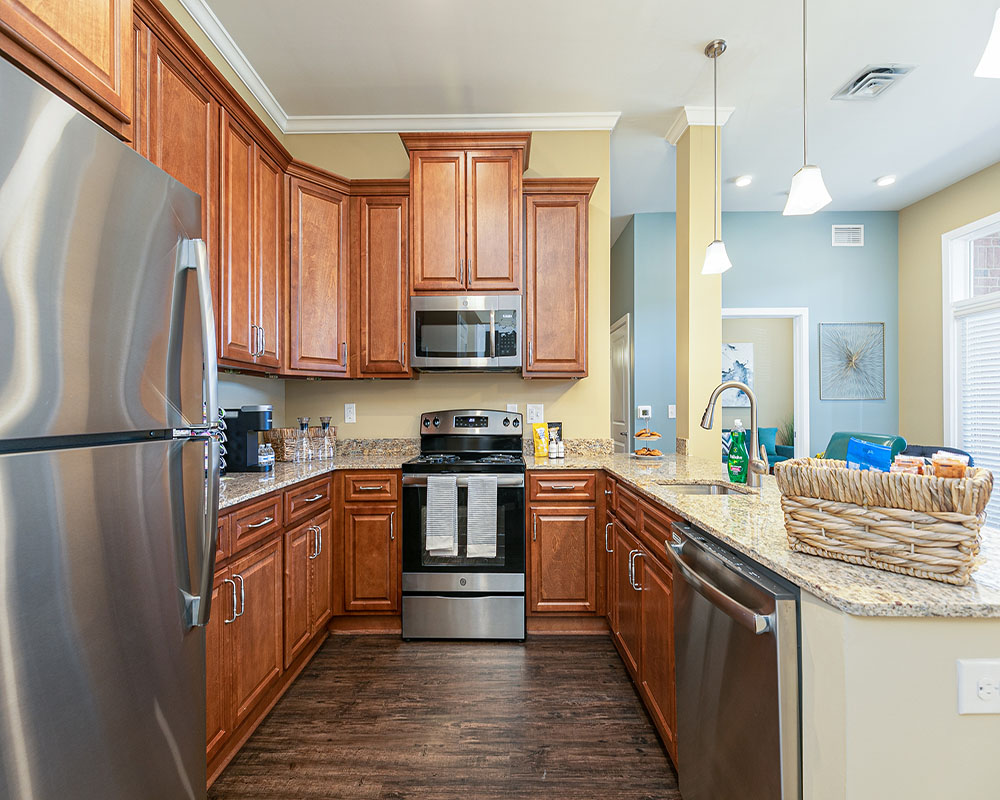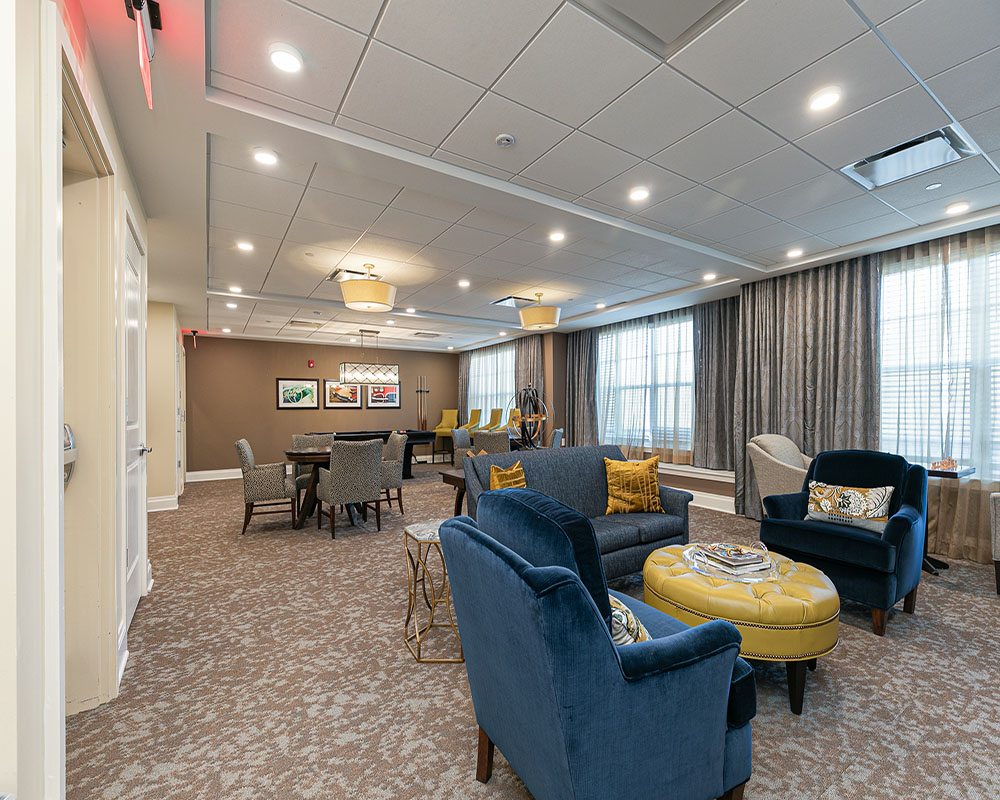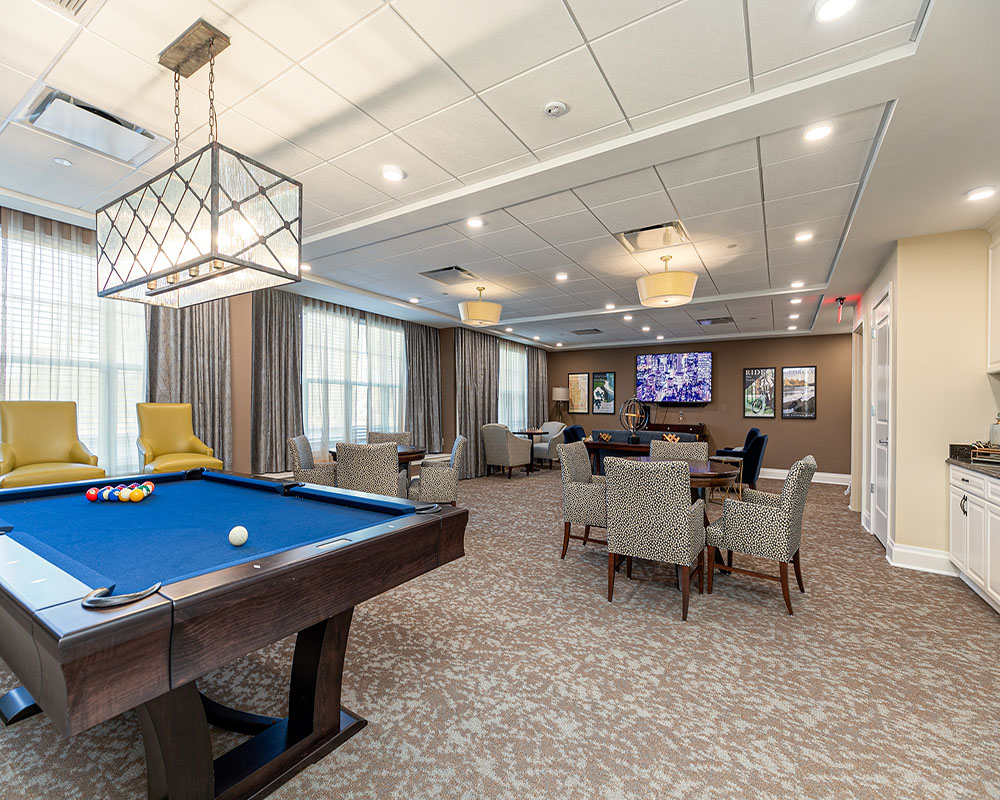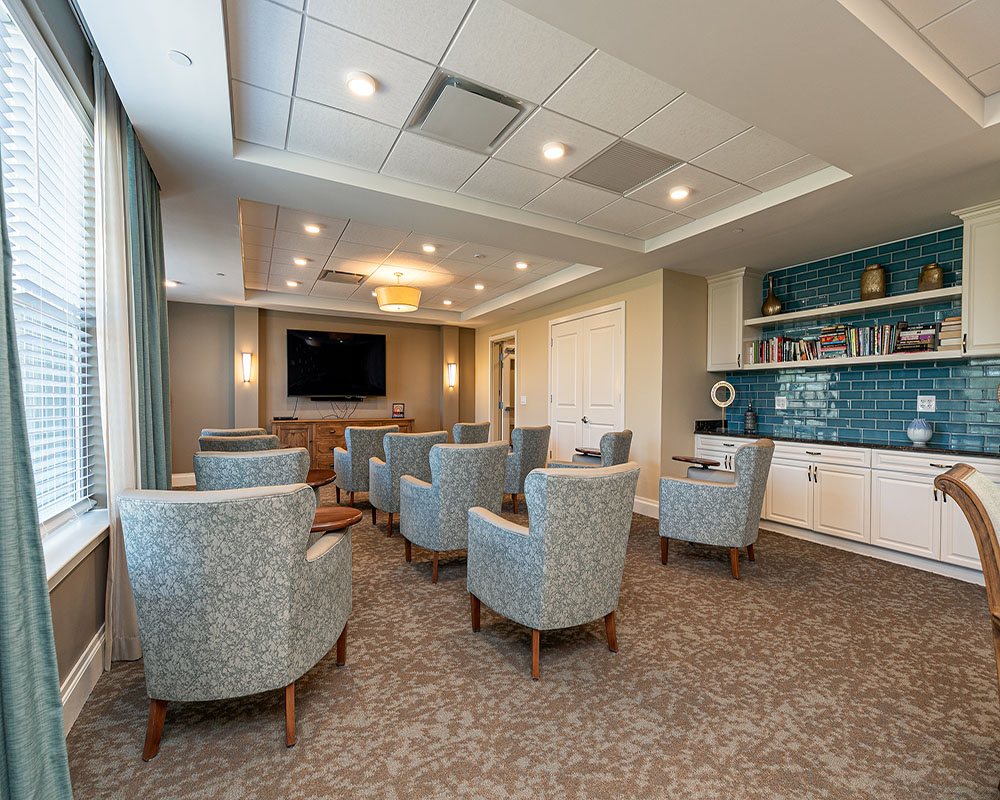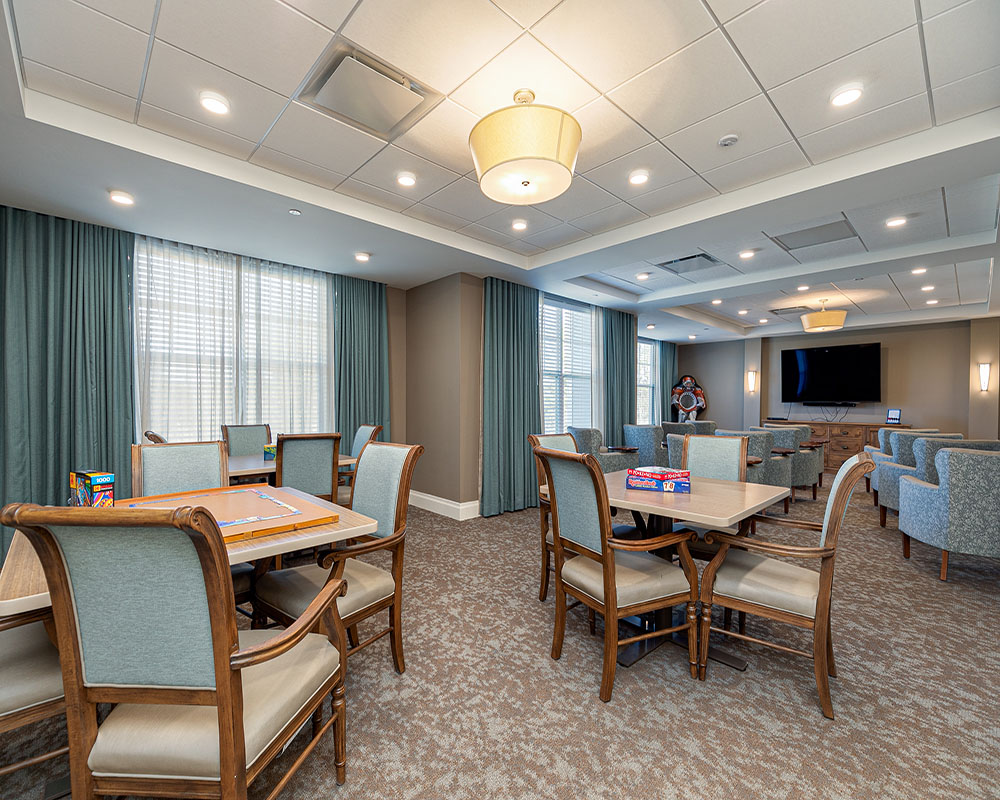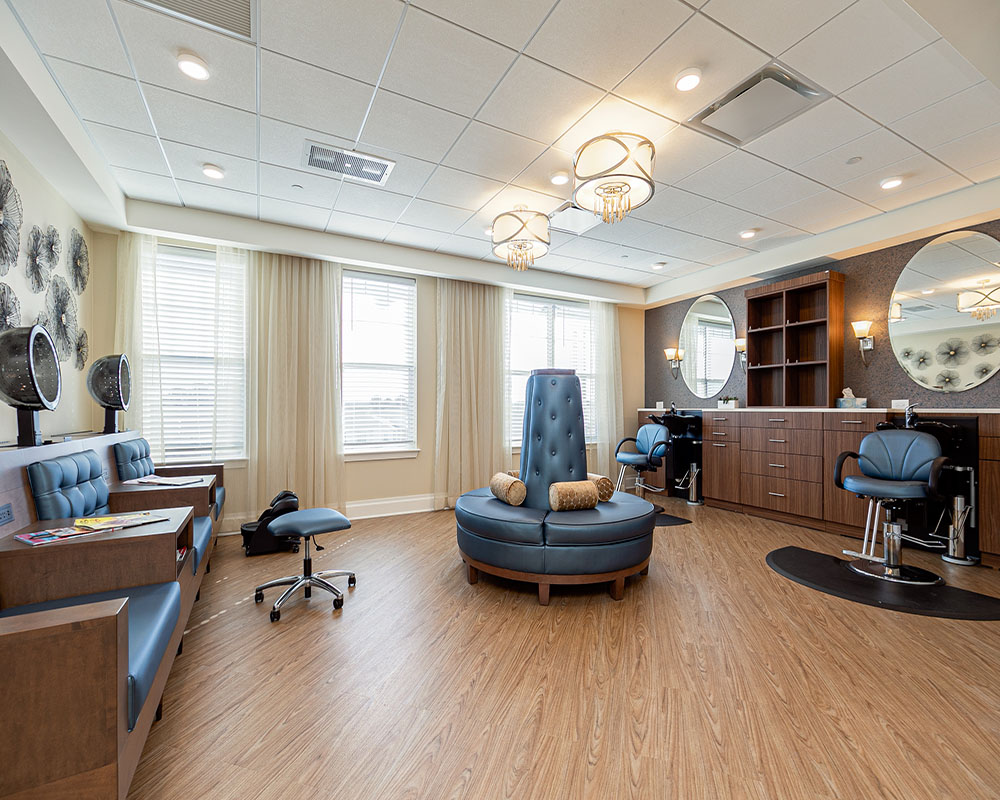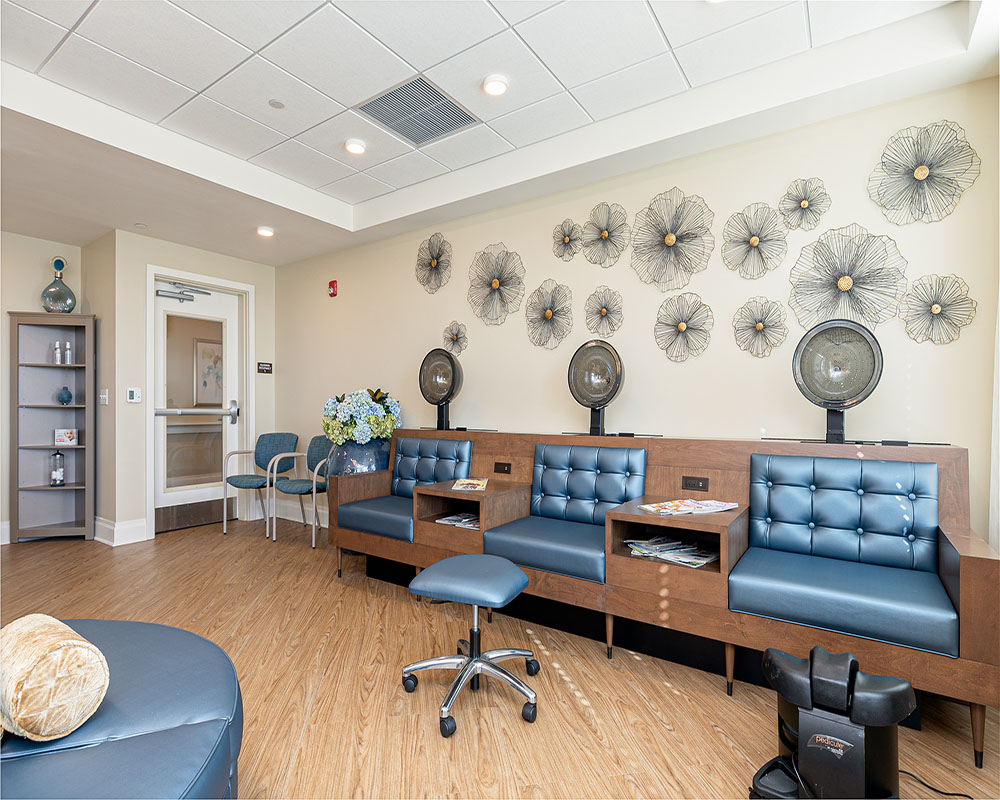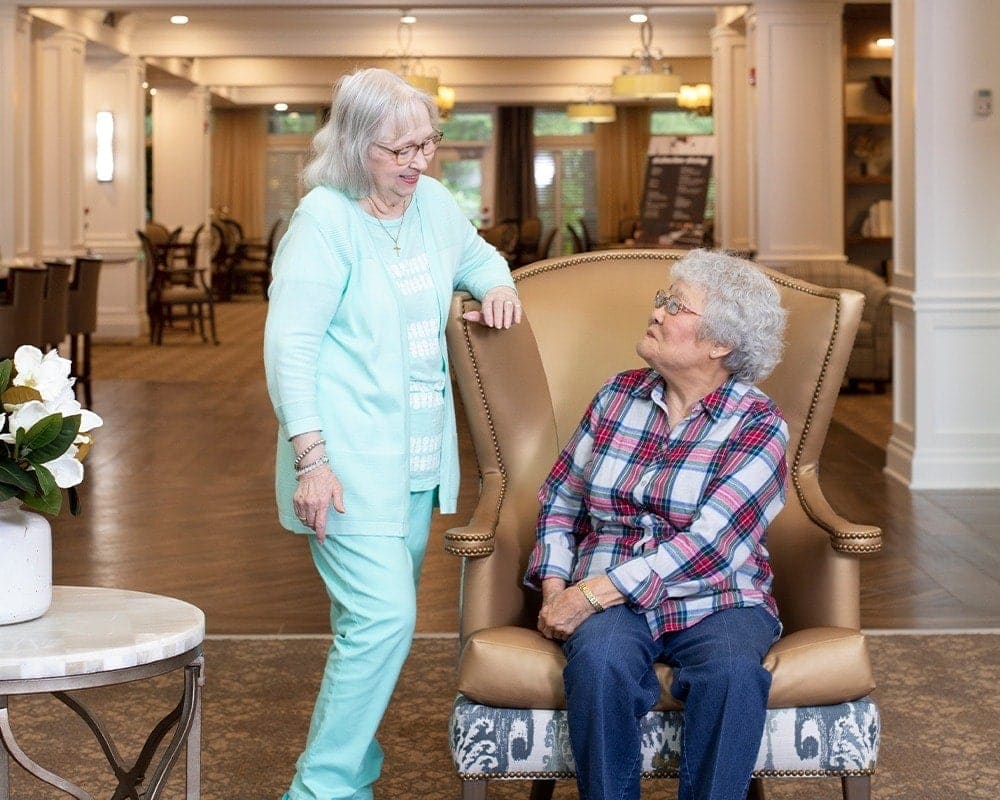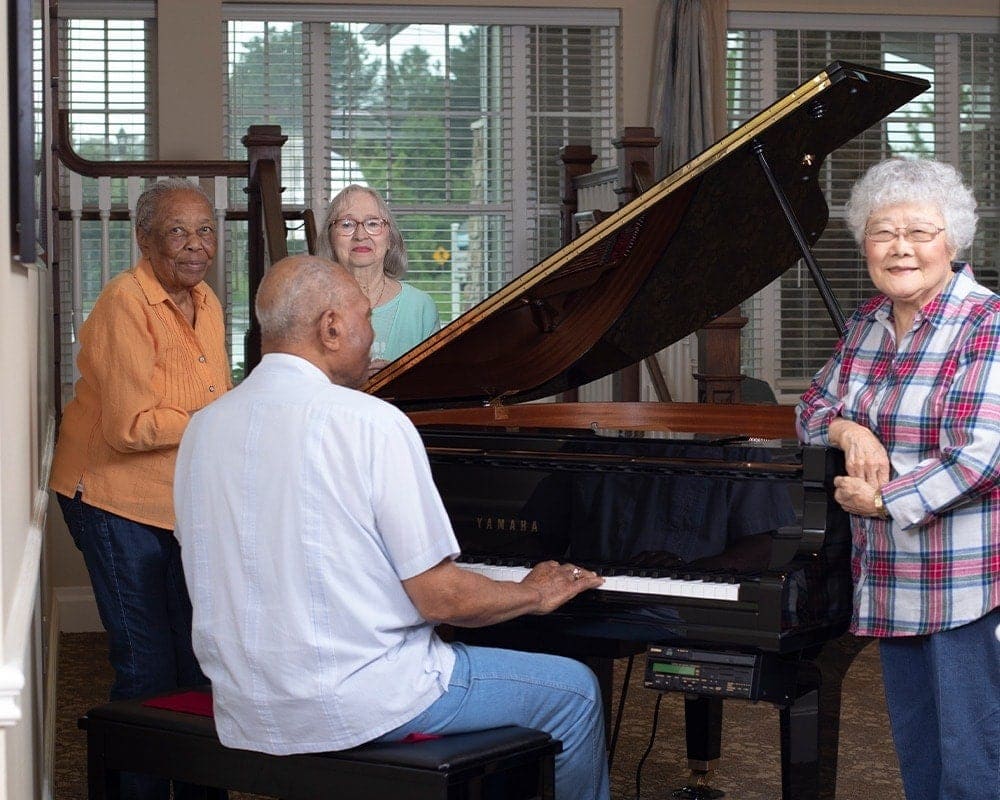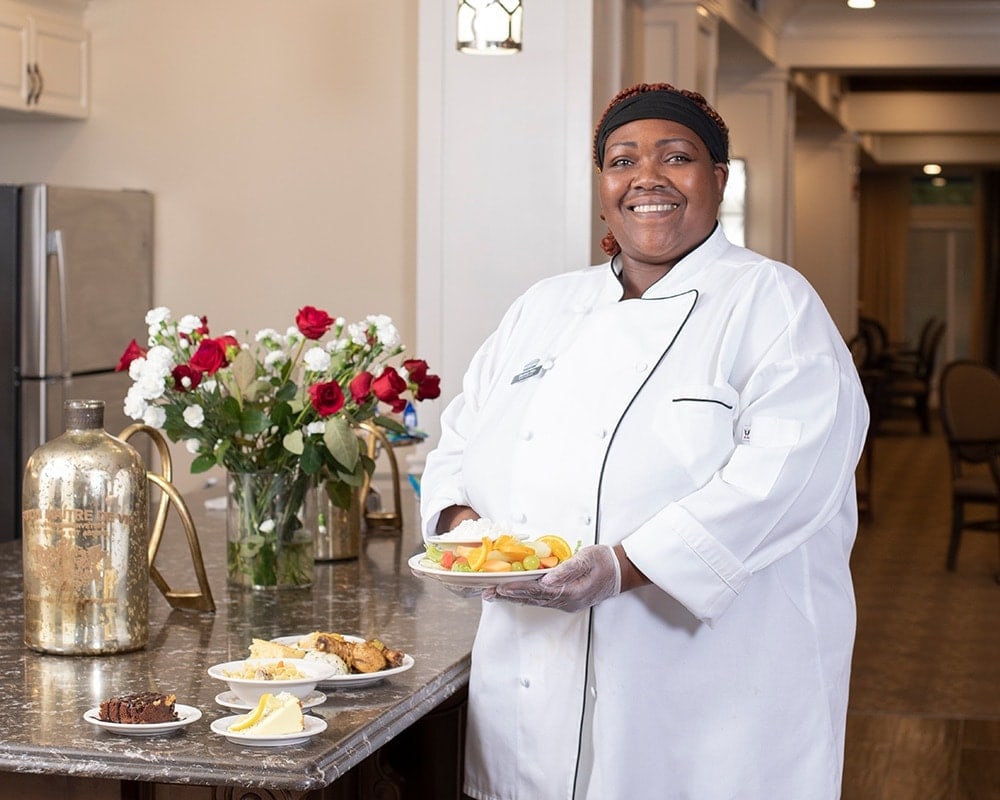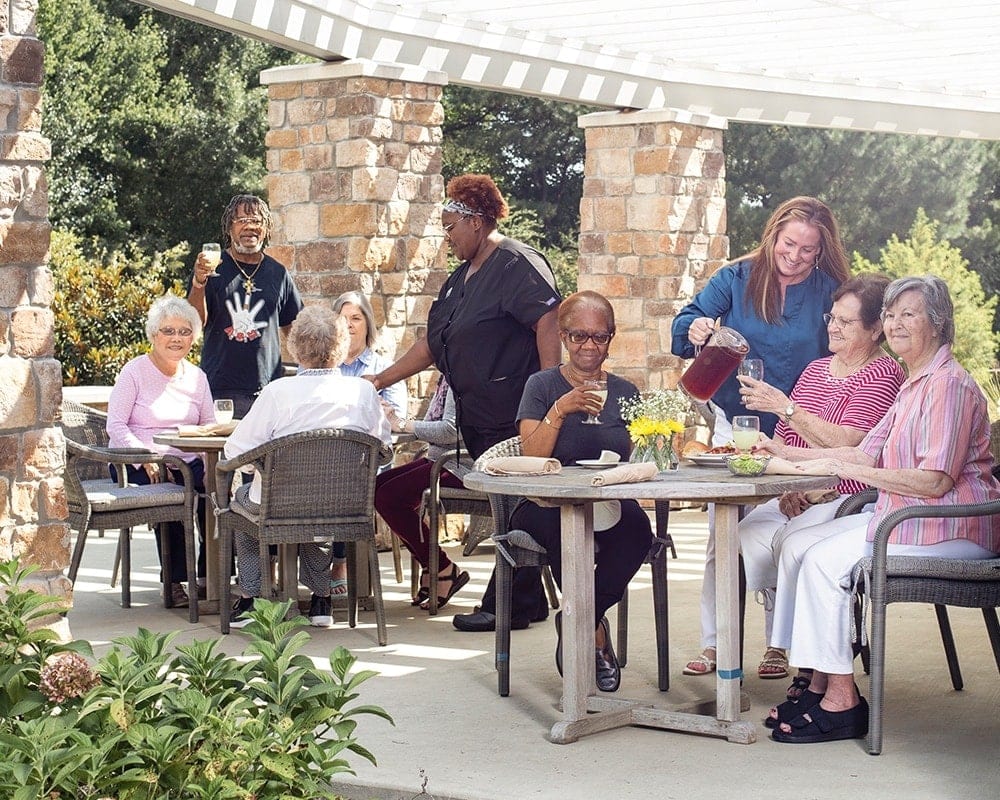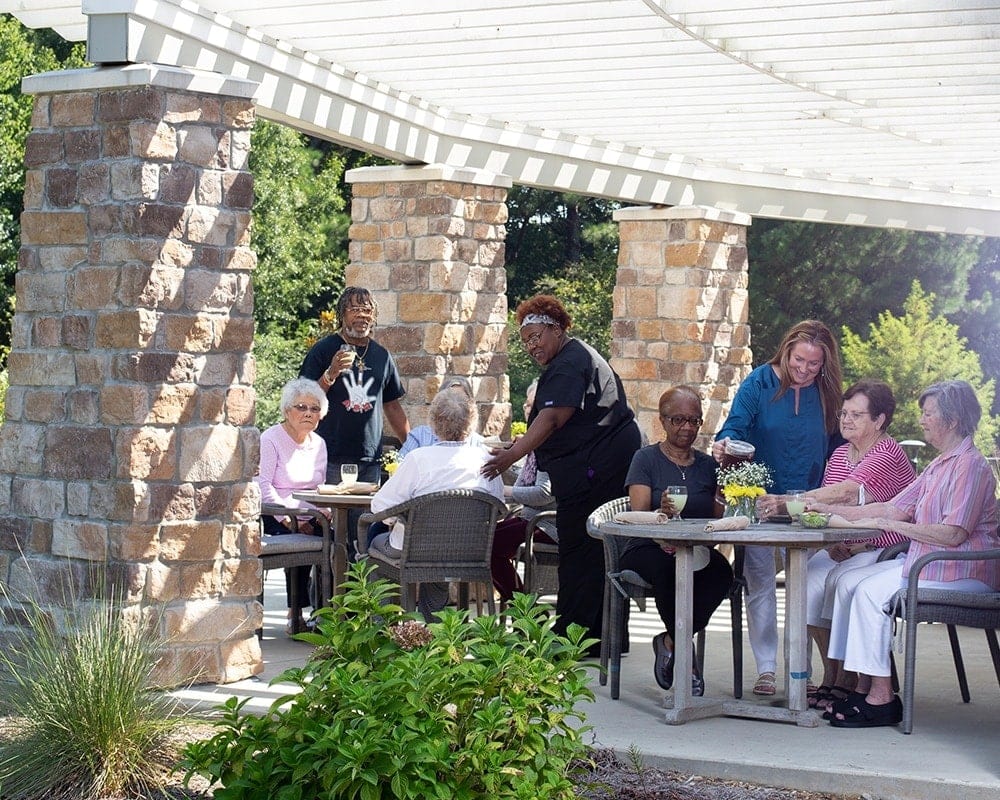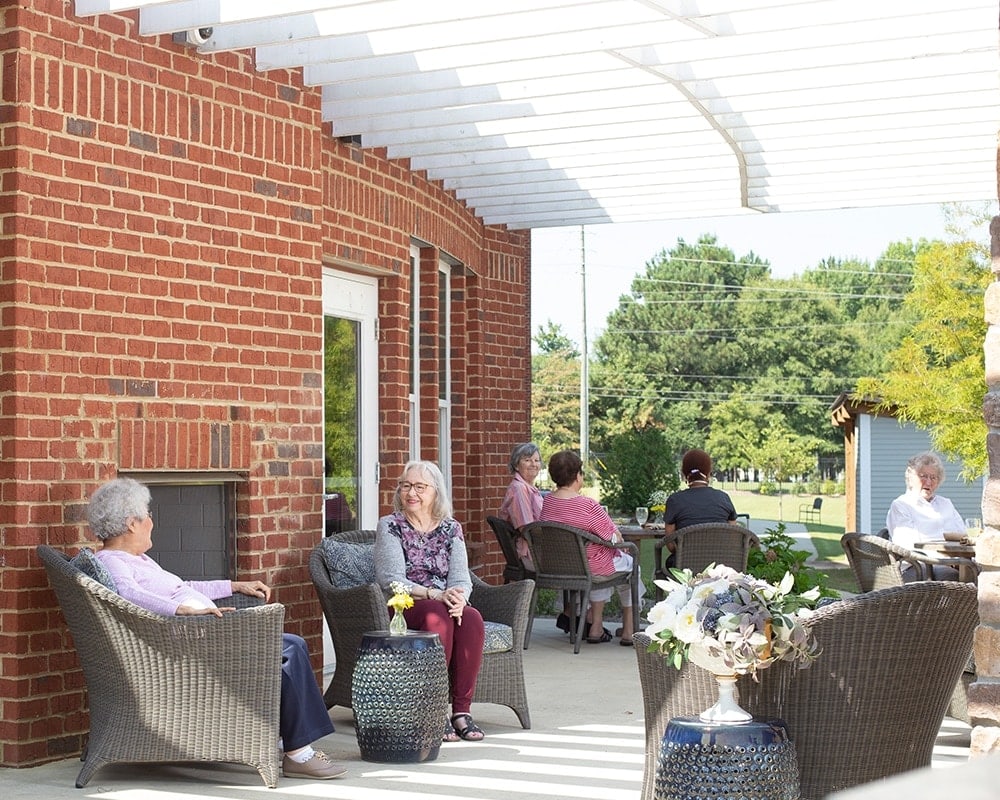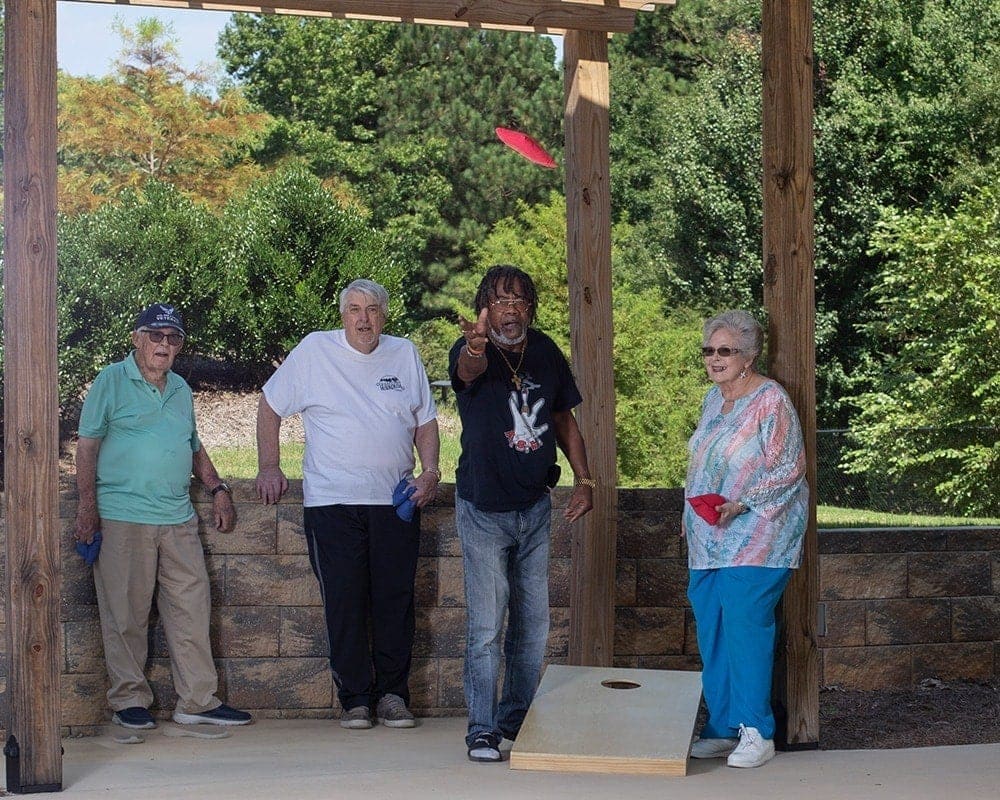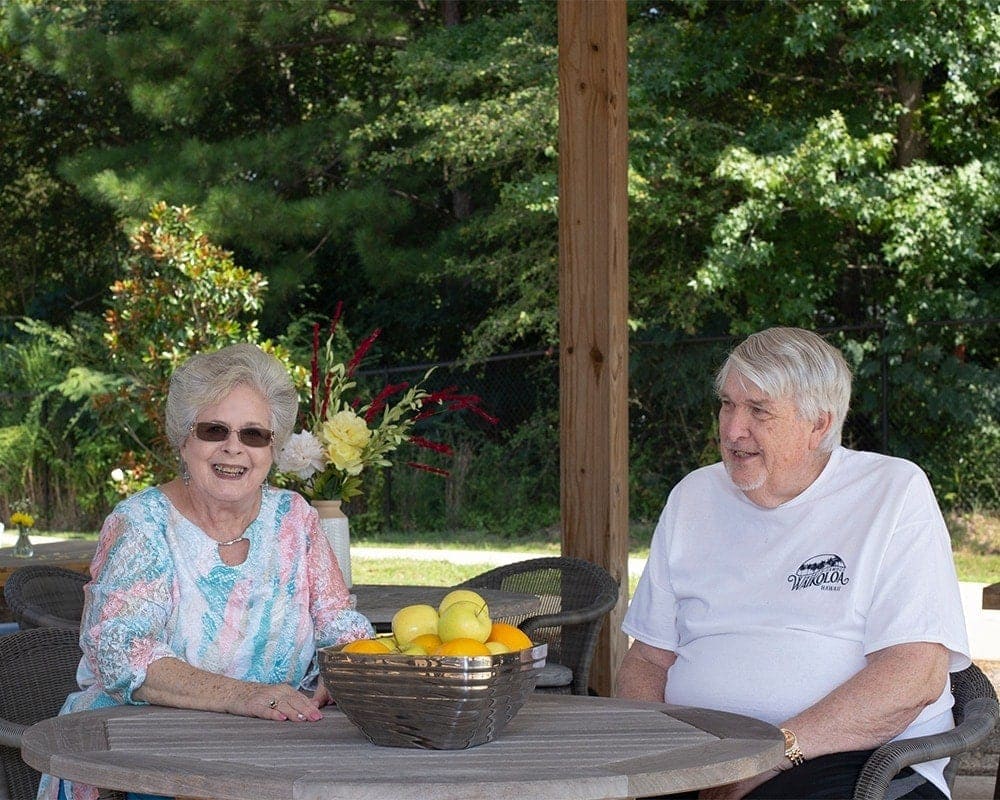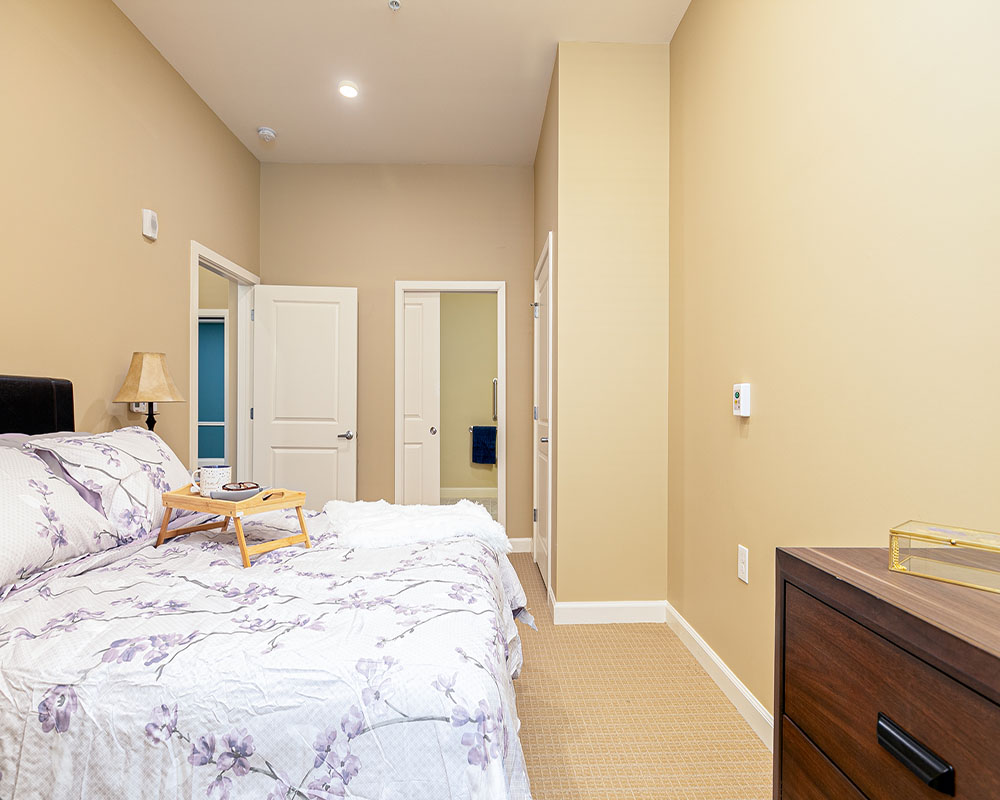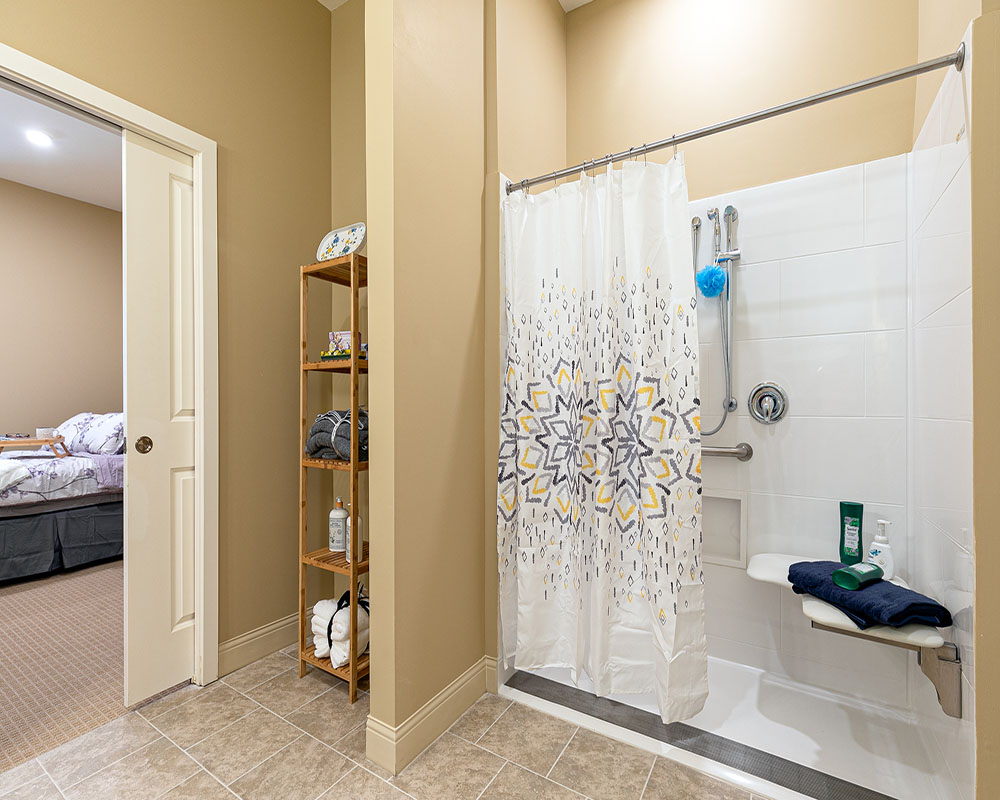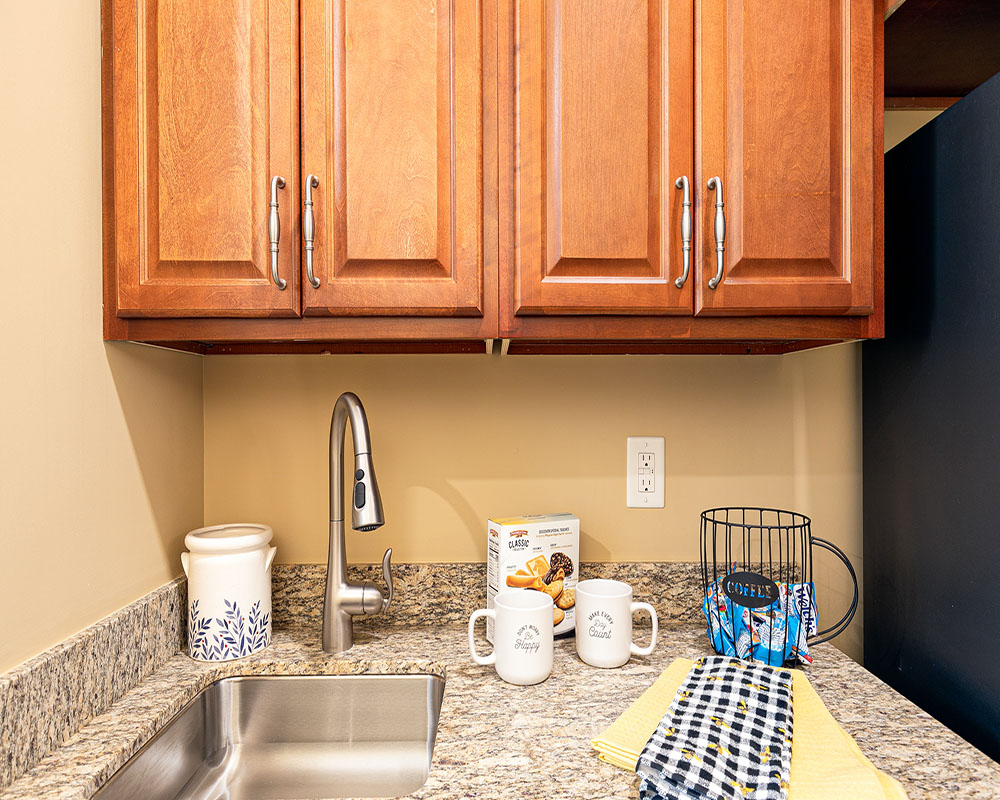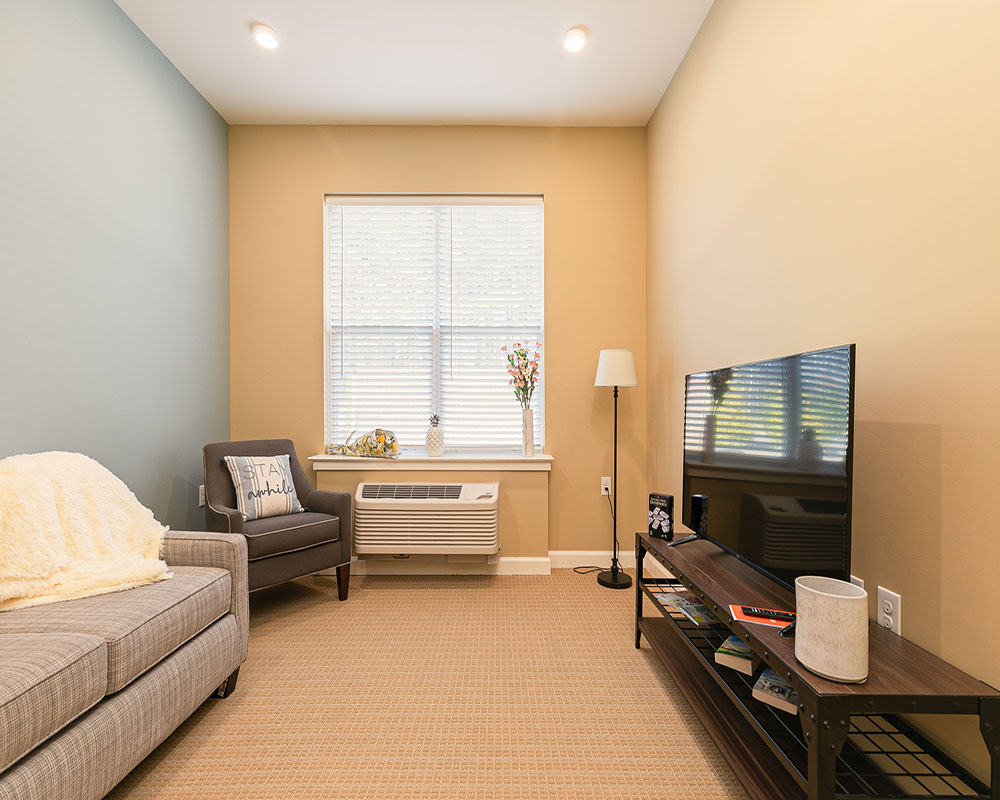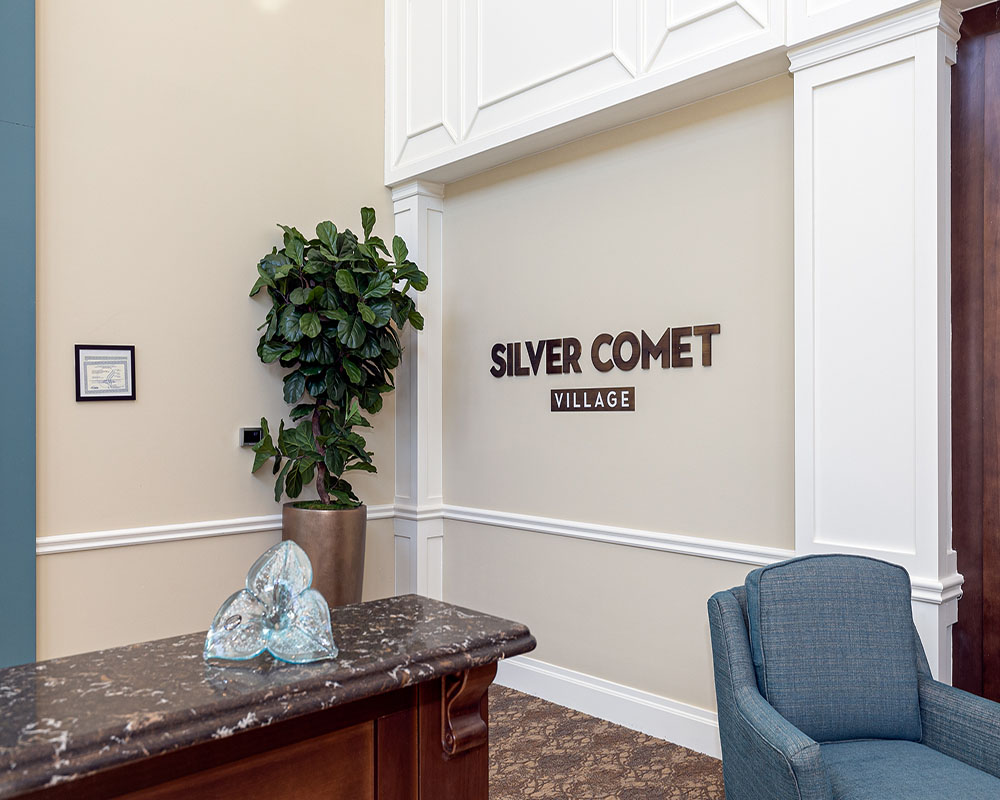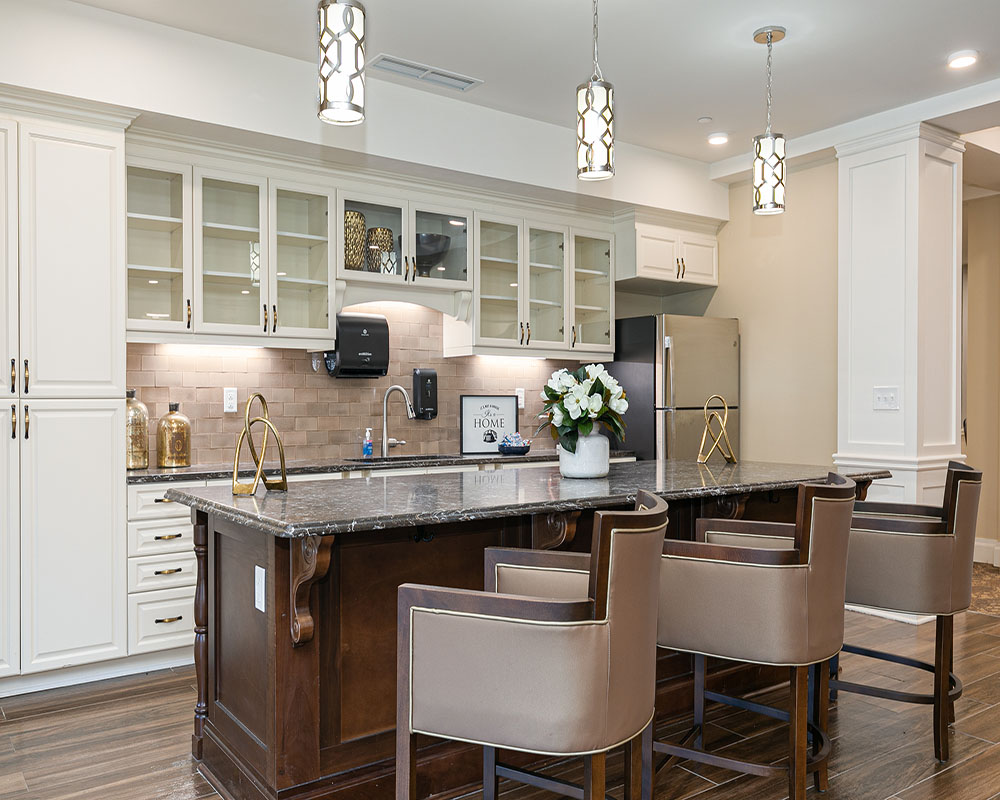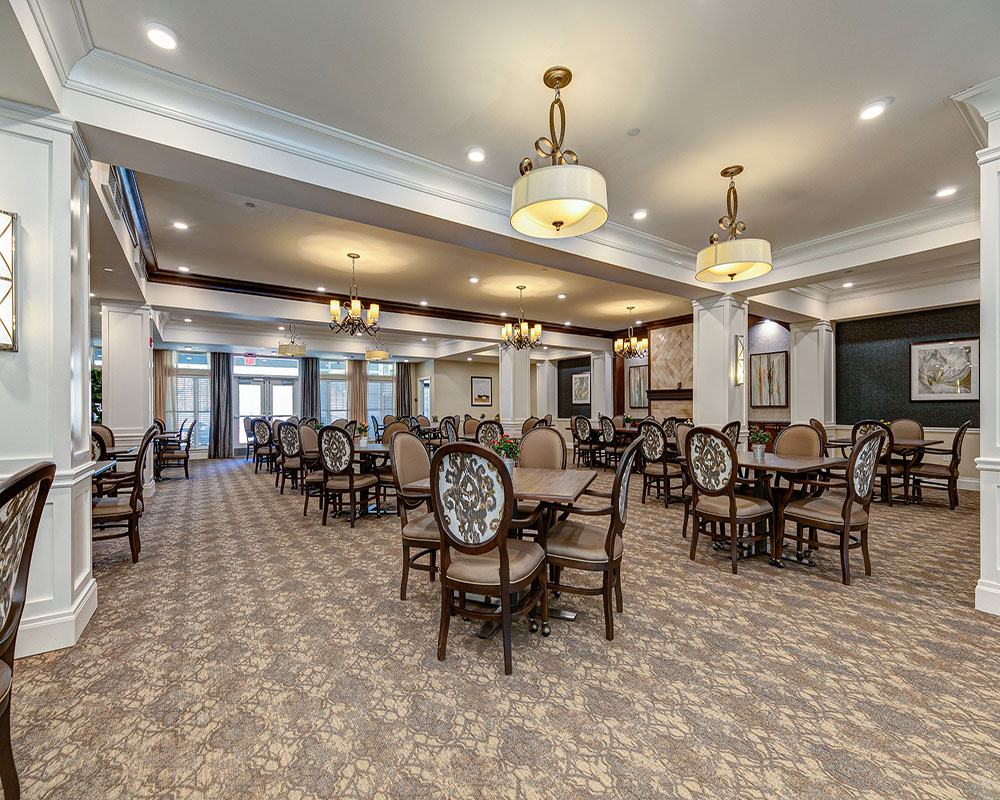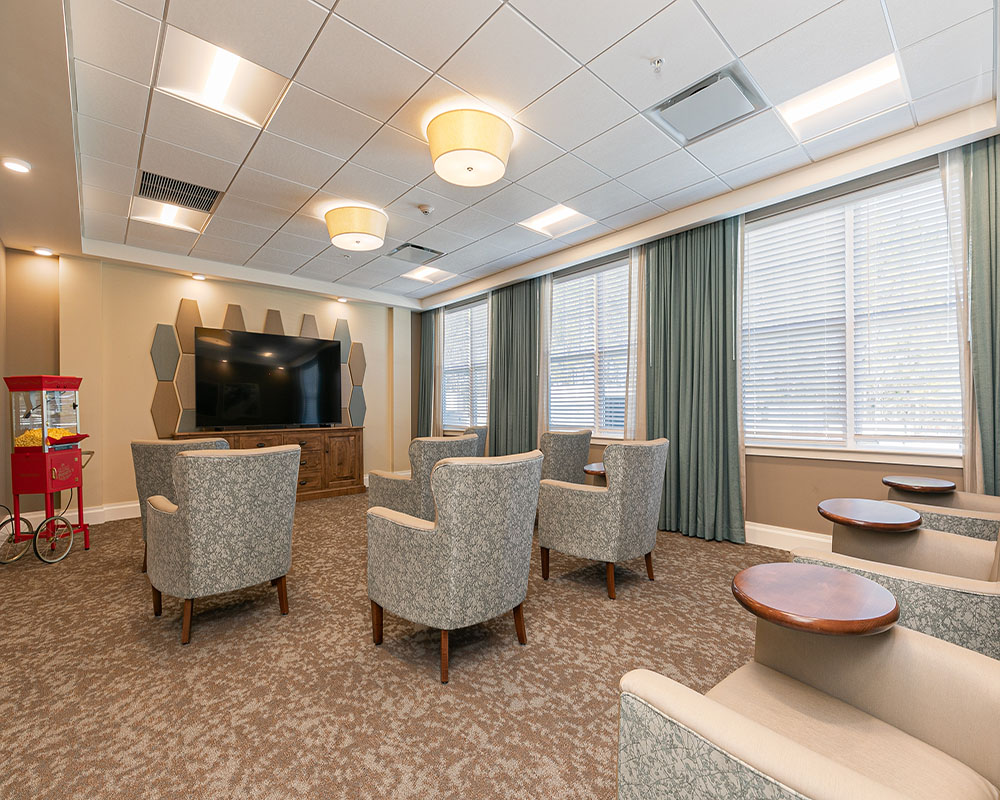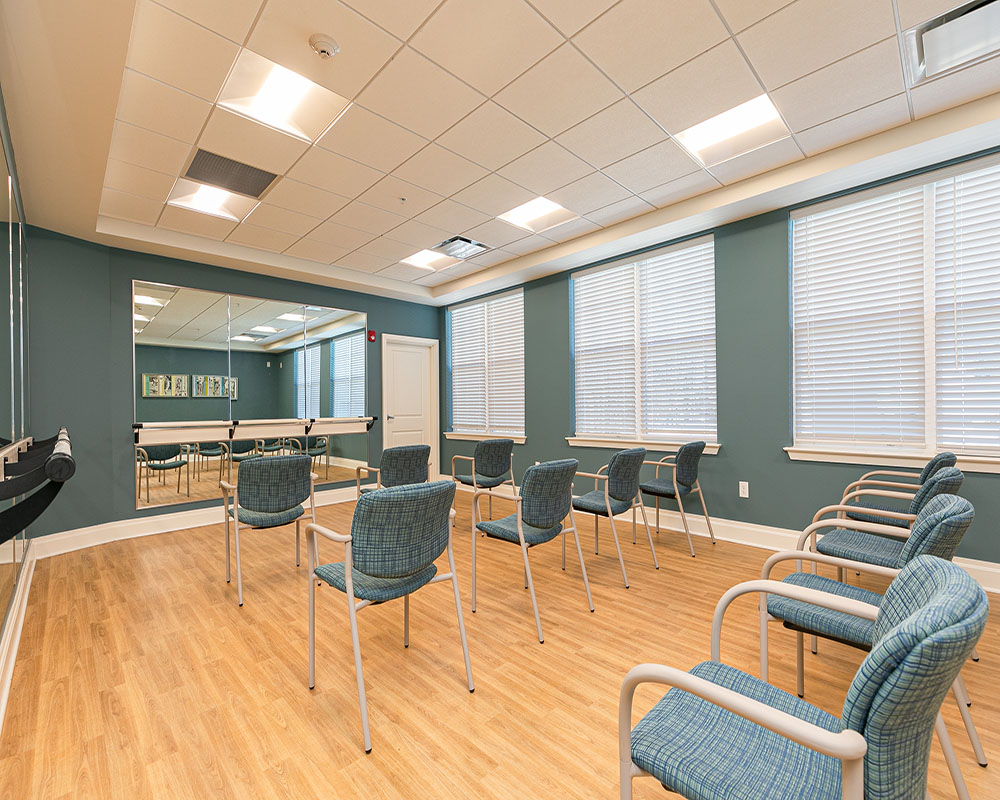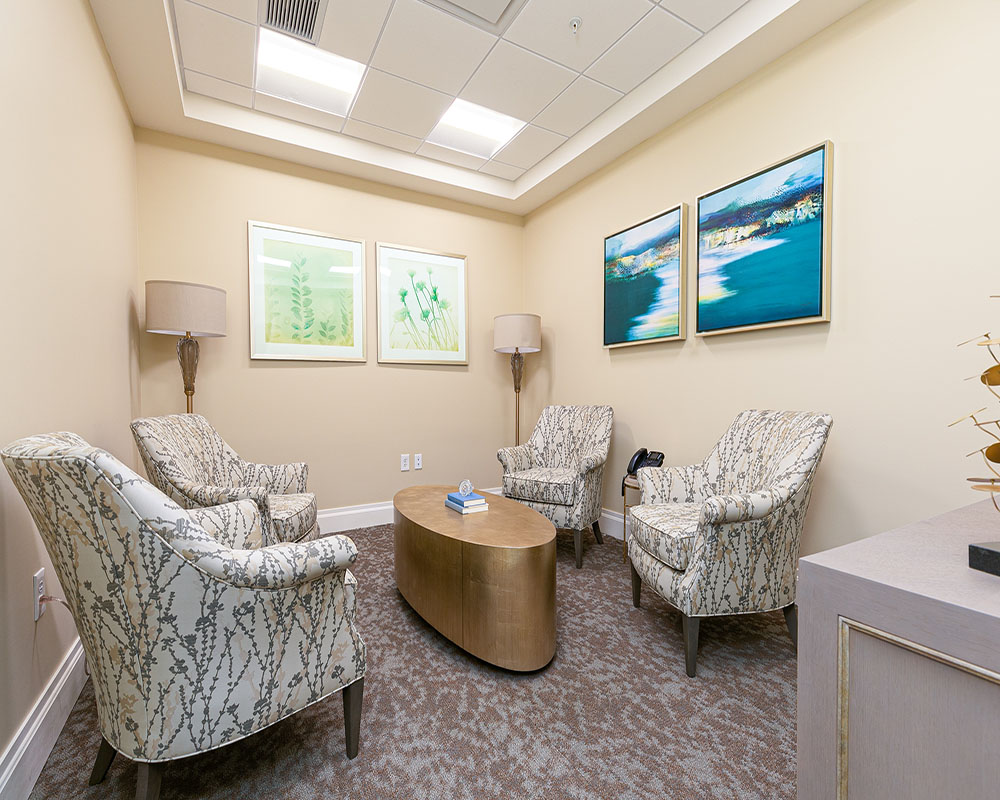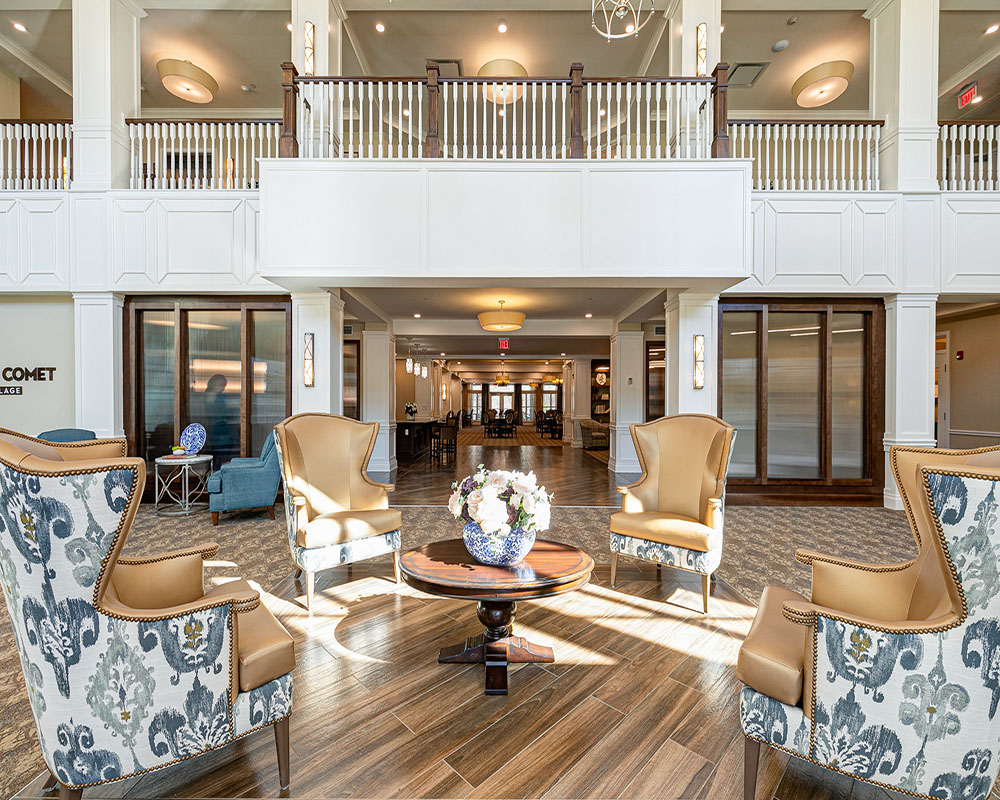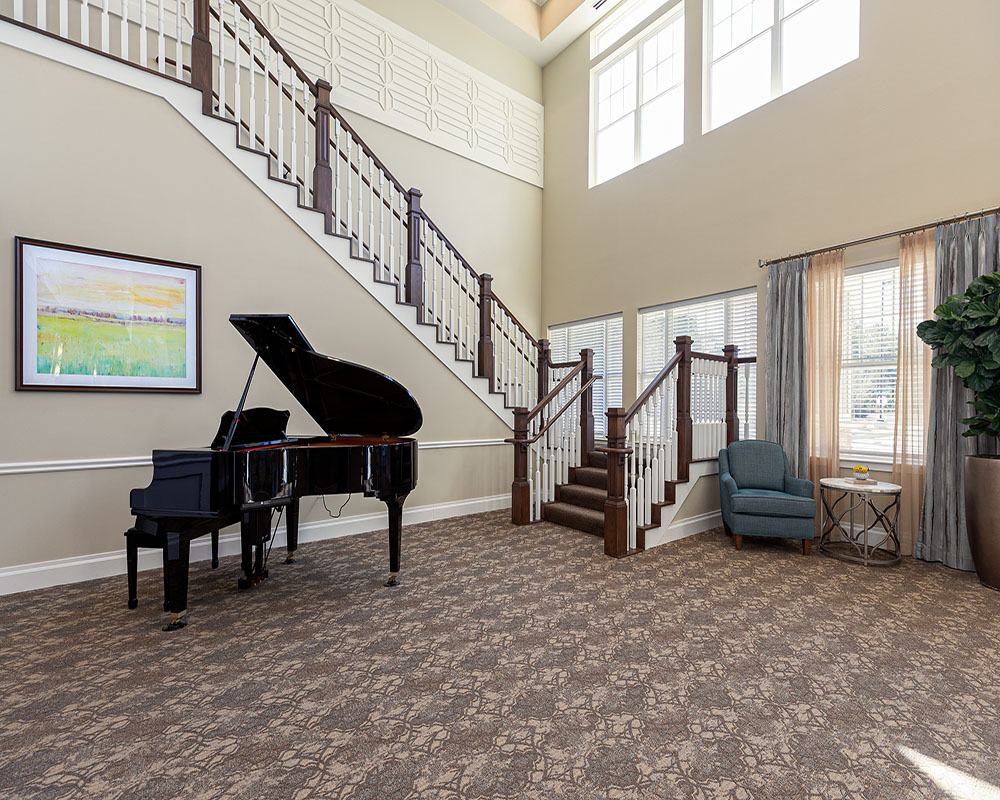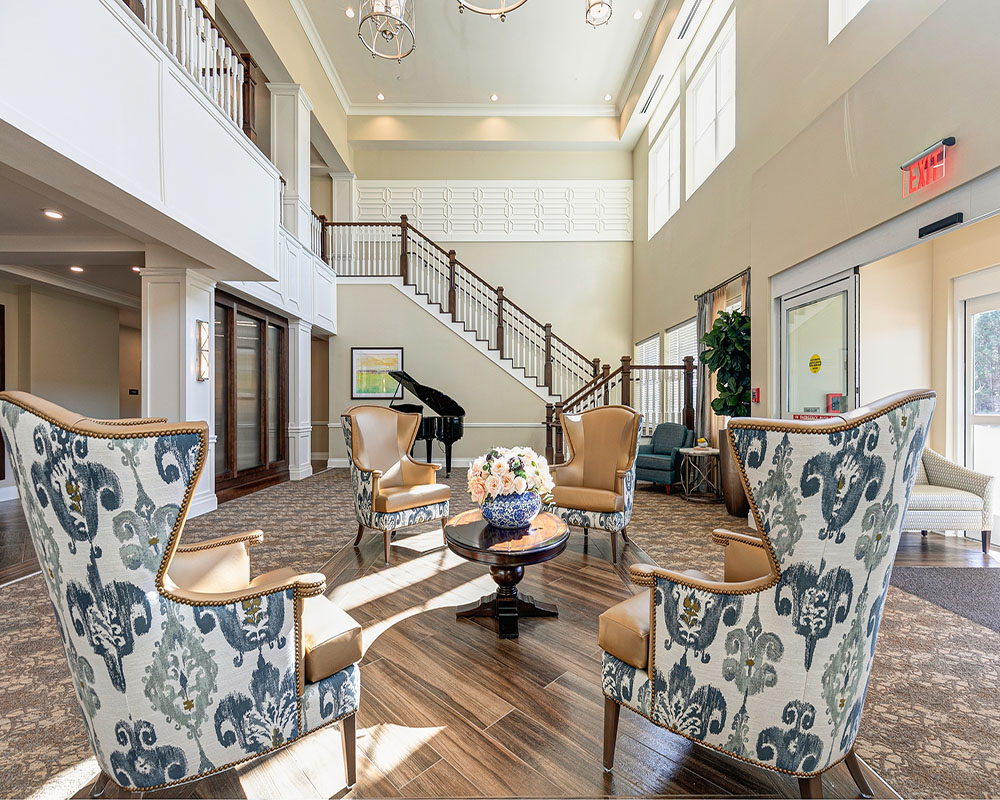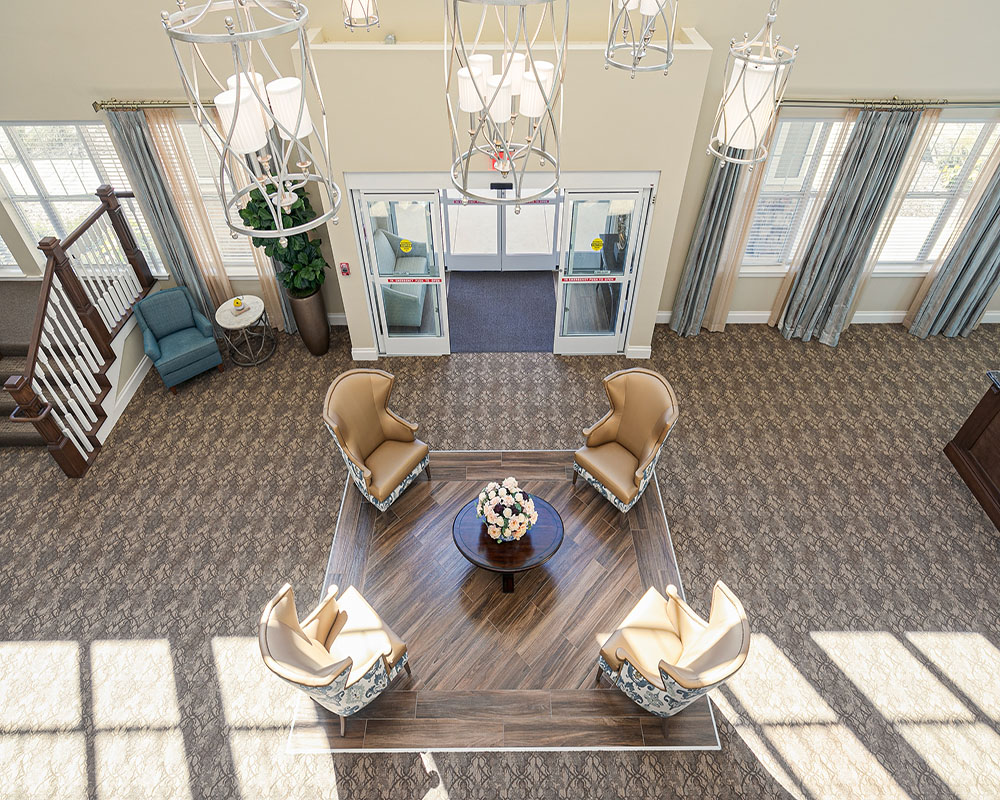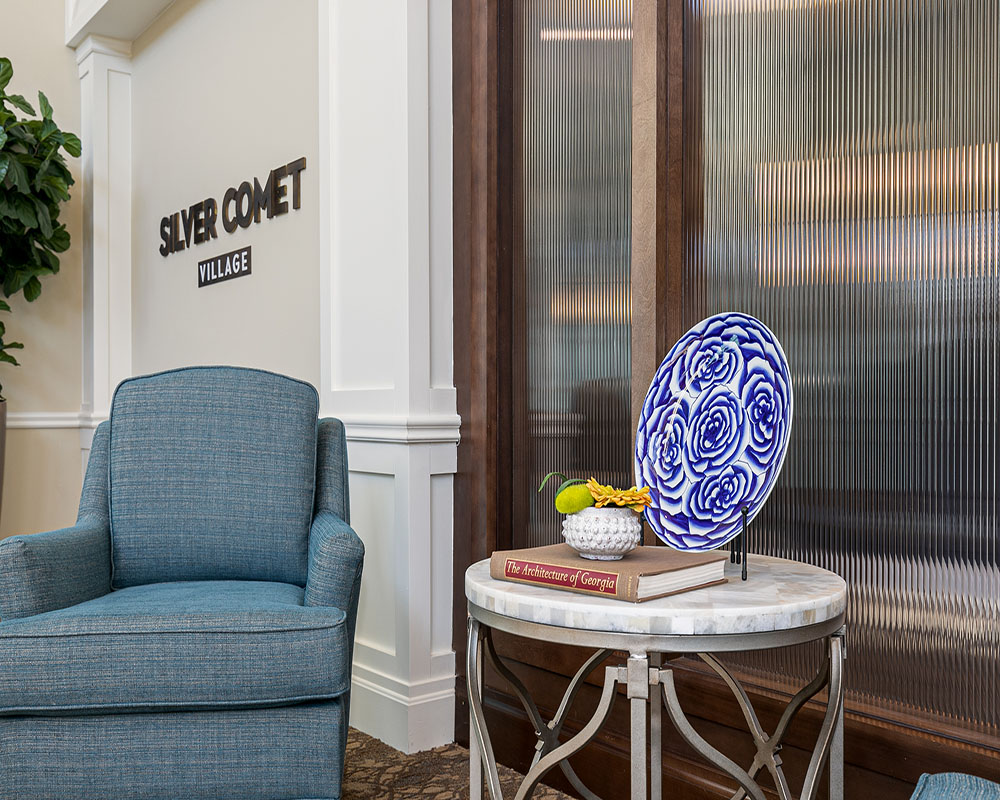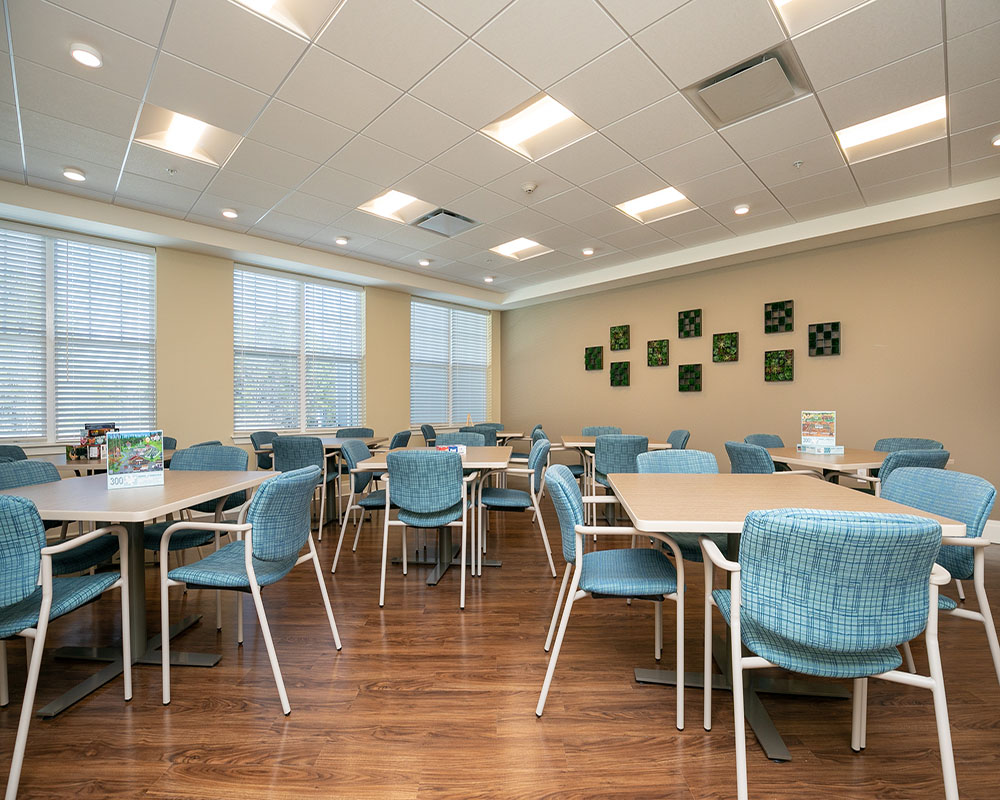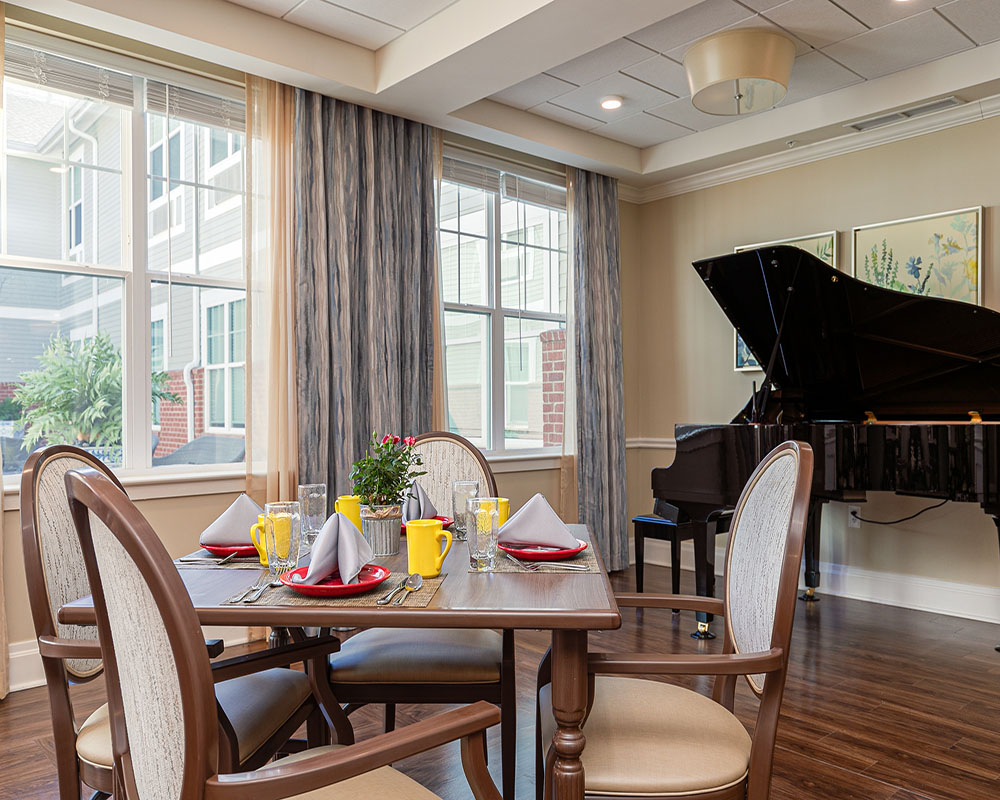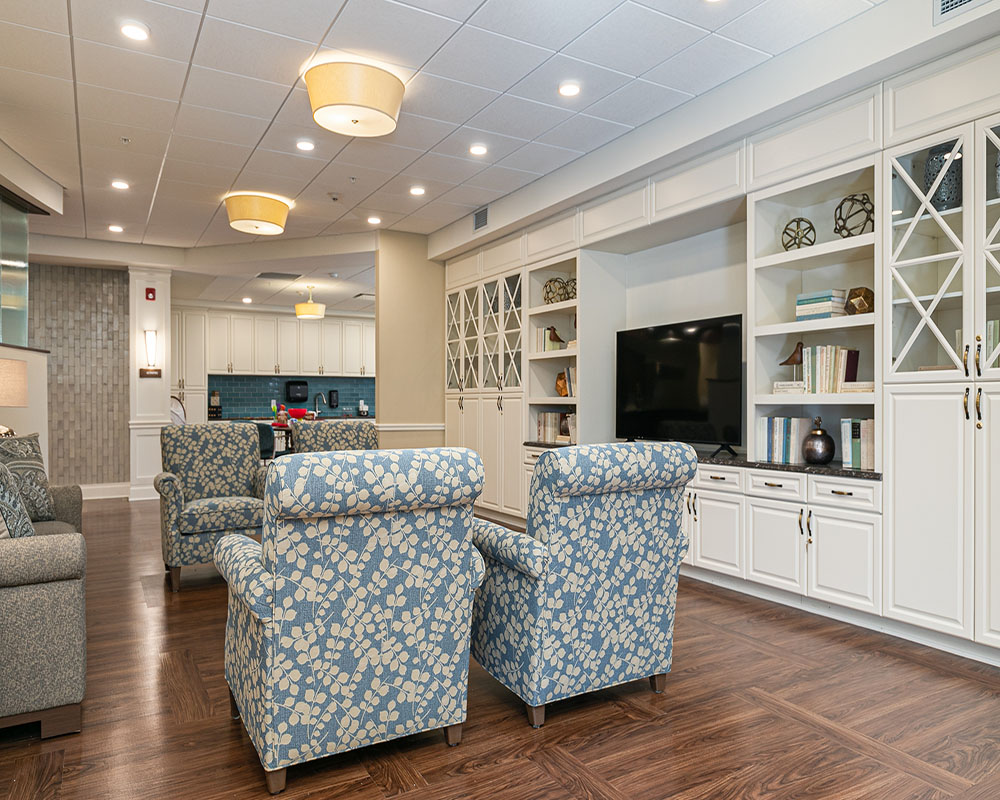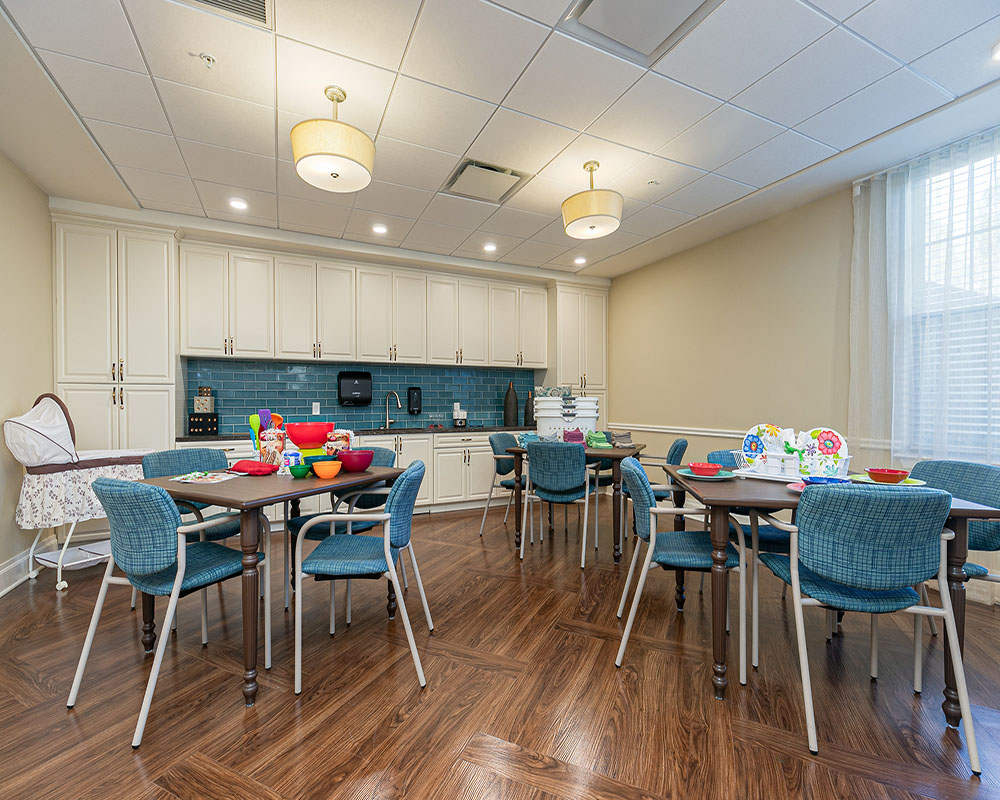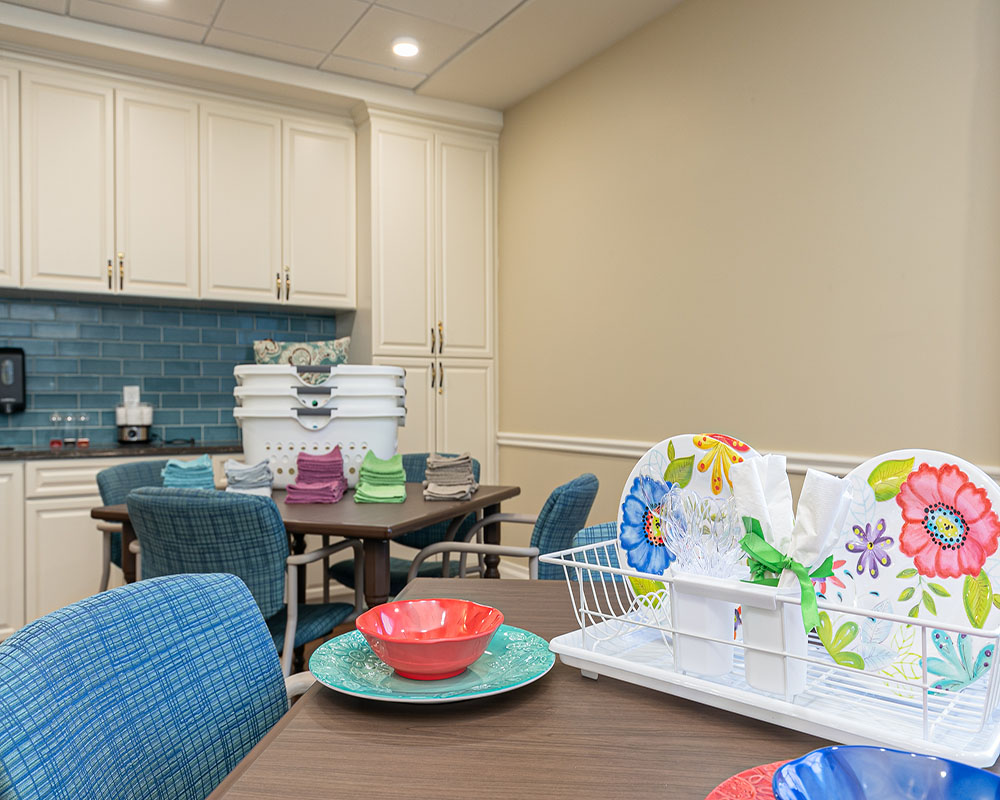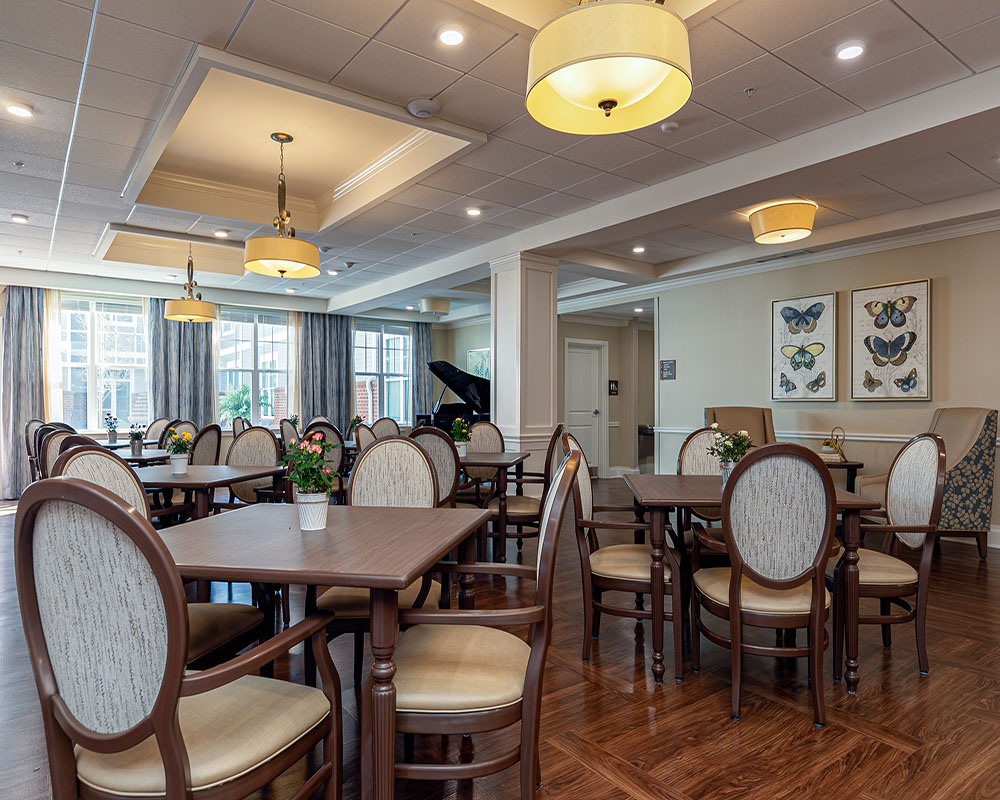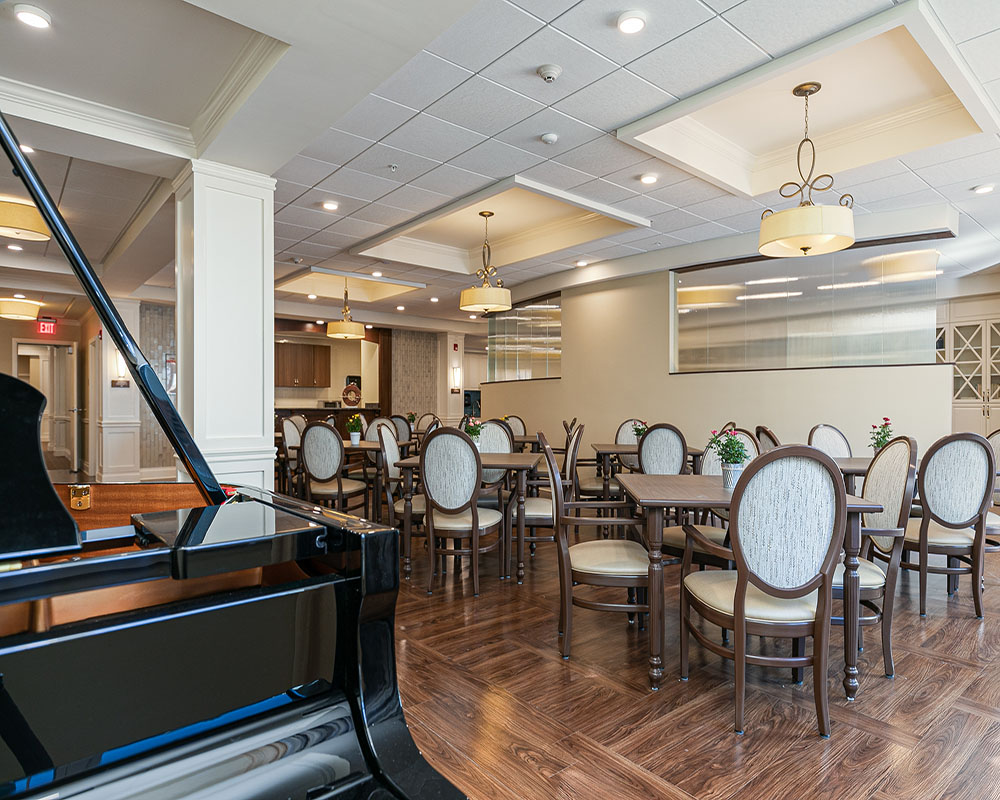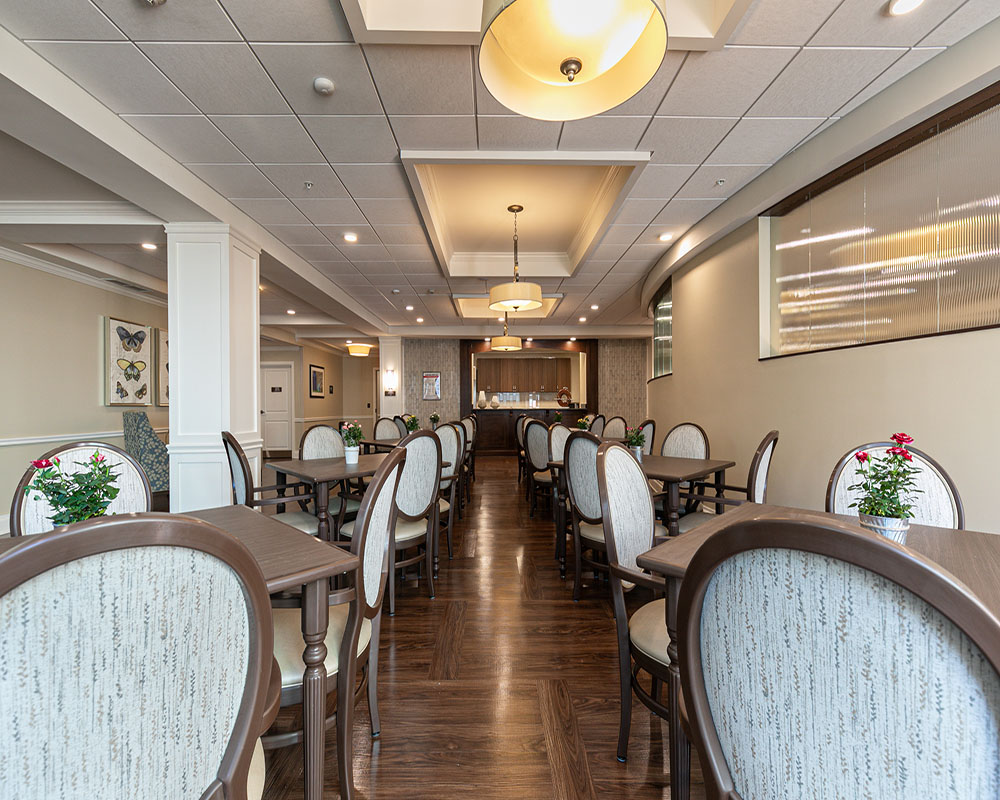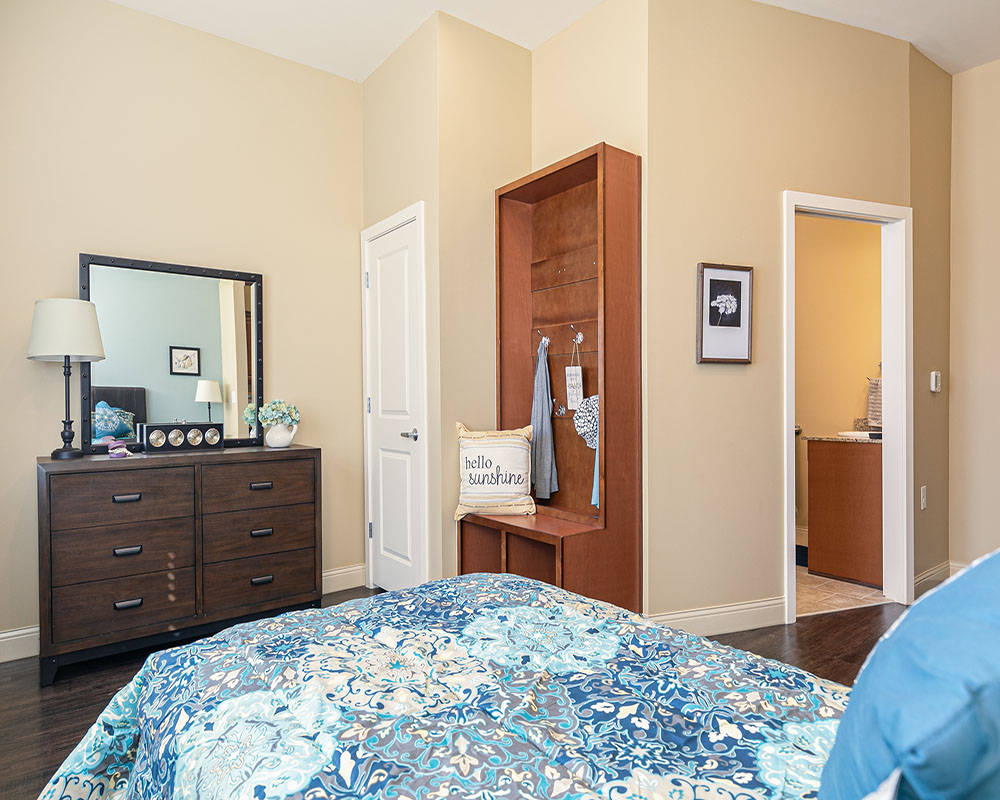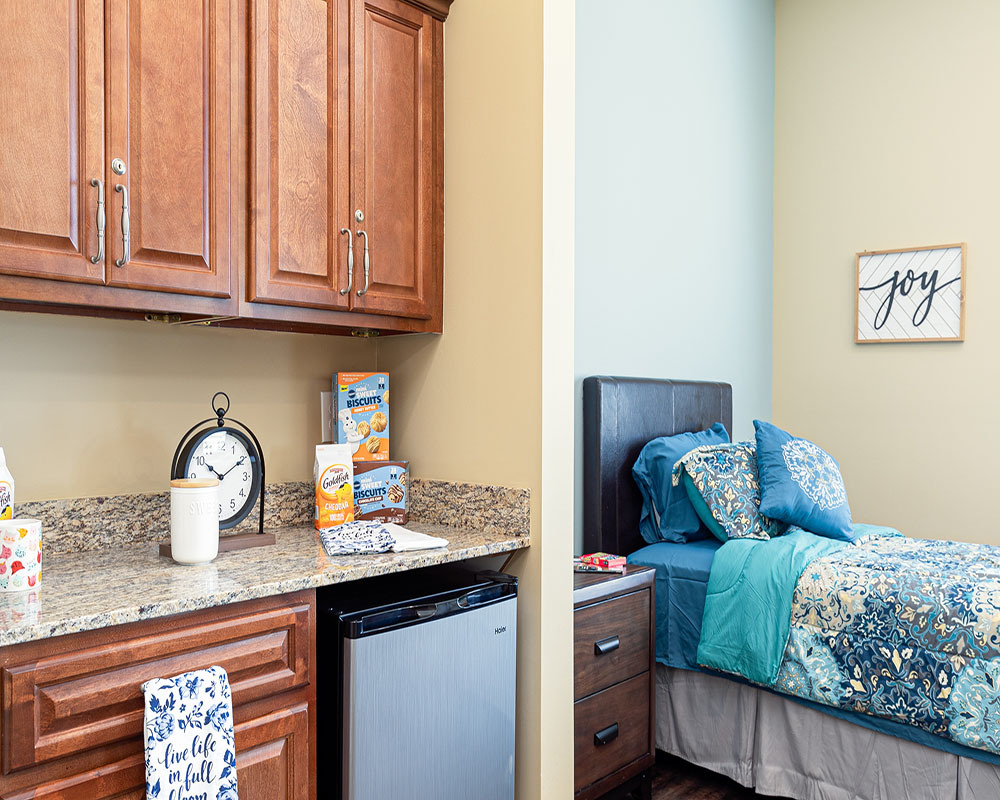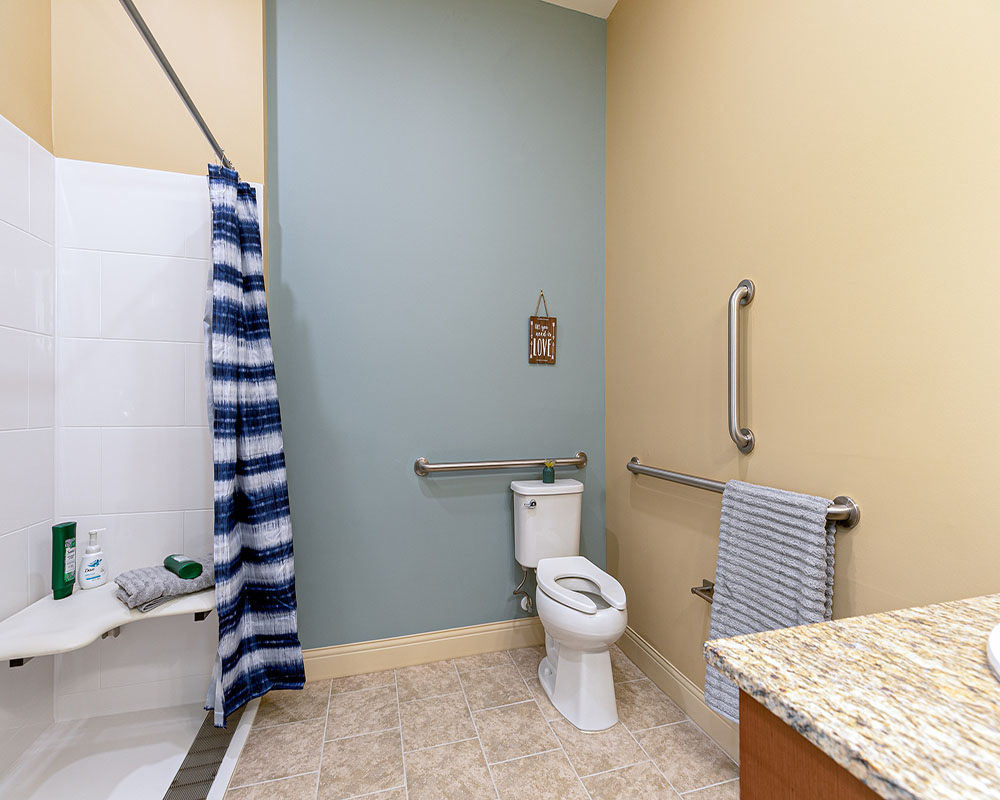There comes a time when families are faced with careful consideration of what long-term care environment is most appropriate to meet the specific wants and needs of their loved one.
Of these care environments, assisted living can be an ideal choice for many older adults and their families—it strikes a balance in promoting resident’s sense of independence while providing ongoing support with daily tasks.
There is no “right time” for assisted living. Rather, choosing when to transition your loved one into this care environment requires you to evaluate factors that impact their overall health and wellness, which include:
- Needing assistance with daily tasks
- Changes in their physical and emotional health status
- Safety concerns
- Preventing and alleviating caregiver burnout
the importance of assisted living
Assisted living communities play an important role in caregiving. Communities like ours provide long-term care for older adults who require support with activities of daily living (ADLs) but can still maintain a certain level of independence.
Residents in assisted living are often semi-independent, have varying levels of mobility, and may be relatively self-sufficient, but can still benefit from help with personal care, medication management, and meal preparation.
Ultimately, this environment bridges the gap between independent living and full-time intensive medical care.
Residents in assisted living are provided with a safe, social, and supportive community with access to personalized care plans, social events, and amenities and services that offer comfort and enjoyment.
For families, communities like ours can provide a strong support network and alleviate the stress of caregiving. This allows families to focus their energy and attention on strengthening their bond with their loved ones and creating new memories.
when is the right time for assisted living?
Contrary to popular belief, transitioning into an assisted living community is not based on an age qualification or retirement status.
In fact, there is no “right time” or one-size-fits-all answer as to when an individual should transition into assisted living.
This decision isn’t reflective of age, but rather it involves evaluating several factors to determine whether assisted living will provide your loved one with the necessary amount of care to maintain and enhance their overall health and well-being.
Finding a community environment that provides your loved one with the appropriate amount of medical assistance, nutritional support, and emotional and social support directly impacts their quality of life. This is why evaluating whether your loved one is a suitable candidate for assisted living matters.
signs that suggest your loved one is ready for assisted living
There are several indicators that may suggest your loved one can benefit from the support offered in assisted living. Take the time to evaluate these qualities in your loved one and include them in this decision-making process.
Assistance with Daily Activities
A key indicator in evaluating whether your loved one is ready for assisted living is if they are relatively independent but require some support with daily tasks like bathing, grooming, cooking, or managing medications.
Difficulty in these areas can lead to frustration, but ongoing professional support in assisted living offers a solution that can still foster residents’ independence.
Assisted living communities have professional staff to support these tasks, promoting physical well-being and allowing residents to focus on enriching other aspects of their lives instead of focusing on mundane daily tasks.

Health Status
If your loved one is experiencing frequent hospital visits, particularly for chronic conditions, but not intensive medical care, this may indicate a need for a supportive care environment.
Assisted living communities can cater to these health-related needs by providing access to on-site medical professionals, medication management, and personalized wellness programs that focus on maintaining residents’ health.
Consider any changes to their emotional well-being too. Mood fluctuations, increased irritability, withdrawal from activities they once enjoyed, and increasing social isolation can all be indications of declining emotional well-being.
Assisted living communities offer various opportunities for social engagement, mental stimulation, and emotional support through on-site amenities and organized events. This environment can help older adults combat feelings of loneliness, boredom, or depression that commonly manifest as they grow older.
Safety Concerns
Common indicators concerning your loved one’s safety include frequent falls, difficulty navigating stairs, and a lack of necessary safety measures in the home, such as grab bars or proper lighting. Additionally, missed medications or appointments can signal an inability to manage health needs, raising serious safety risks.
Monitoring these factors is essential because they directly impact the physical well-being of older adults, who may be more vulnerable to injuries and accidents when they live alone. Confirming their safety prevents harm and enhances their overall quality of life.
Assisted living communities are specifically designed to address these safety concerns. They provide a safe environment with staff available 24/7, ready to assist residents with mobility and emergencies. Moreover, these communities are equipped with safety features that can significantly reduce the likelihood of accidents, such as handrails, call systems, and well-lit pathways.
Caregiver Burnout
Caregiver burnout is a state of physical, emotional, and mental exhaustion experienced by people who care for a loved one, often due to the expansive responsibilities associated with caregiving.
It can manifest as chronic fatigue, irritability, feelings of helplessness, and a decline in personal health. Recognizing caregiver burnout is vital, as it can negatively impact you and your loved one.
The services, support, and amenities in assisted living can significantly reduce caregiver burnout—and prevent it in the first place. Our trained staff offer professional care for residents, allowing family members to step back from their daily caregiving responsibilities and focus on strengthening their connections.
This sense of community encourages caregivers to seek help and fosters a healthier work-life balance, ultimately promoting both the caregiver’s and the resident’s quality of life.
schedule a tour
Deciding when to transition your loved one into assisted living is an important decision that requires you to evaluate their quality of life and overall health and wellness. Connect with our team at Silver Comet Village to schedule a tour of our assisted living community and learn more about whether it’s right for you and your loved one.








